Writing Prompts About Yourself: 27 Ideas to Spark Your Creativity
By: Author Paul Jenkins
Posted on August 3, 2023
Categories Writing , Journaling
Are you struggling to find inspiration for your writing? Look no further than yourself! Writing prompts about yourself can be a great way to explore personal identity, relive memories, examine relationships, and express gratitude. Whether you are journaling for self-reflection or working on a creative writing project, writing prompts about yourself can help you grow as a writer and as a person.
Exploring personal identity through writing prompts about yourself can help you gain a deeper understanding of who you are and what makes you unique. Reliving memories through writing can be a powerful exercise in self-reflection, allowing you to examine past experiences and learn from them. Examining relationships through writing prompts can help you understand the people in your life and how they have shaped you.
Writing prompts about yourself can also be a great way to set goals and explore your future aspirations. Whether you are focusing on personal growth or career development, writing about your goals and dreams can help you clarify your vision and take action towards achieving them. So why not give it a try? You might be surprised at what you discover about yourself.

Key Takeaways
- Writing prompts about yourself can help you explore personal identity, relive memories, examine relationships, and express gratitude.
- Writing about your goals and aspirations can help you clarify your vision and take action towards achieving them.
- Whether you are journaling for self-reflection or working on a creative writing project, writing prompts about yourself can help you grow as a writer and as a person.
27 Writing Prompts About Yourself
Here are 27 writing prompt ideas to help you write about yourself:
1. Describe your personality in 3 words. Explain why you chose those words.
2. Write about your biggest accomplishment so far in life. What did you do and why was it meaningful?
3. Describe a time you failed at something. What did you learn from that experience?
4. What are your strengths and weaknesses? Provide examples.
5. Who has had the biggest influence on your life so far? Describe how they have impacted you.
6. What are your goals and ambitions in life? Why are they important to you?
7. If you could change one thing about yourself, what would it be? Why?
8. What is your favorite childhood memory? Describe it in detail and why it stands out.
9. Write about a time you felt truly happy. What made you feel that way?
10. Describe your ideal future. What does your life look like 10 years from now?
11. What is your biggest fear? Where does this fear come from and how has it impacted you?
12. What is your best and worst habit? How have they shaped your personality?
13. Describe your family background and how it has influenced you.
14. What is your most valued possession and why? What memories does it hold?
15. What is your favorite book, movie, or song? Explain why it resonates with you.
16. Who is your role model or hero? Why do they inspire you?
17. If you could live anywhere, where would you choose to live? Why?
18. What is one skill you would like to get better at? Why is this important to you?
19. Write about a time you felt courageous. What gave you courage in that situation?
20. Describe one of your quirks or eccentricities. How does this contribute to your personality?
21. What is your biggest regret so far in life? If you could, what would you do differently?
22. What are you most passionate about? How does this passion influence your life?
23. Describe your ideal day. Consider what you would do, who you would see, and how you would feel.
24. If you could have dinner with anyone, dead or alive, who would it be and why?
25. What is one misconception others often have about you? What is the truth?
26. Describe a challenge you have overcome. How did you manage to do it?
27. What is a lesson you had to learn the hard way? What happened and what did you learn?
Understanding Self-Reflection
Self-reflection is a process of introspection that allows you to connect with yourself, gain clarity, and develop a deeper understanding of your thoughts, emotions, and behaviors. It is a powerful tool that can help you improve your self-awareness, mindfulness, and emotional intelligence.
Importance of Self-Reflection
Self-reflection is important because it helps you identify your strengths and weaknesses, and understand how your experiences have shaped you. By reflecting on your thoughts and emotions, you can gain a deeper understanding of your values, beliefs, and goals, and make more informed decisions.
Self-reflection can also help you develop a more positive outlook on life. By focusing on your strengths and accomplishments, you can build self-confidence and self-esteem, and feel more optimistic about your future.
Self-Reflection Through Writing
One of the most effective ways to engage in self-reflection is through writing. Writing allows you to capture your stream of consciousness and express your thoughts and emotions in a safe and private space.
To engage in self-reflection through writing, you can use writing prompts that encourage you to explore your thoughts and emotions. For example, you can write about a challenging experience you had and how it affected you, or reflect on your values and how they guide your decisions.
Writing prompts can also help you connect with yourself on a deeper level. By asking open-ended questions, prompts encourage you to explore your inner world and gain insight into your thoughts and emotions.
Overall, self-reflection is an important tool for personal growth and development. By engaging in self-reflection through writing, you can connect with yourself, gain clarity, and develop a deeper understanding of your thoughts, emotions, and behaviors.
Exploring Personal Identity
When it comes to writing prompts about yourself, exploring your personal identity can be a great starting point. Personal identity refers to the characteristics, traits, and beliefs that make you who you are. By reflecting on these aspects of yourself, you can gain a deeper understanding of your own identity and values.
Traits and Personality
Your traits and personality are a fundamental part of your personal identity. Take some time to reflect on your character traits, such as whether you are an introvert or extrovert, and what values and beliefs guide your actions. Think about your strengths and weaknesses and how they contribute to your personality. You can use prompts like “What are your top five strengths, and how do they contribute to your identity?” or “What is a character trait that you admire in others, and why?”
Appearance and Style
Your appearance and personal style can also be a reflection of your personal identity. Consider the clothes you wear, the way you style your hair, and any accessories you use. Think about how your appearance and style contribute to your sense of self. You can use prompts like “What is your favorite outfit, and why?” or “What is a physical feature that you love about yourself?”
Personal Beliefs and Values
Your personal beliefs and values can shape your identity and guide your actions. Think about what you believe in, whether it’s a religious or spiritual belief, a political ideology, or a personal philosophy. Consider how your beliefs and values impact your decisions and interactions with others. You can use prompts like “What is a personal belief that you hold dear, and why?” or “What is a value that you try to live by, and how does it impact your life?”
Reflecting on these aspects of your personal identity can be a powerful tool for self-discovery and personal growth. By gaining a deeper understanding of who you are, you can become more confident and knowledgeable about yourself.
Reliving Memories
Reliving memories is a great way to get to know yourself better and explore your past experiences. Writing about your memories can be a powerful tool for self-discovery, and it can help you gain insight into your personality, values, and beliefs. In this section, we will explore some writing prompts that can help you relive your memories.
Childhood Recollections
Childhood memories are some of the most vivid and powerful memories we have. They can shape our personality and our beliefs, and they can influence the way we see the world. Writing about your childhood memories can help you understand how your past experiences have influenced your present self.
Here are a few writing prompts to help you relive your childhood memories:
- What was your hometown like? Describe the sights, sounds, and smells that you remember.
- Who were your grandparents? What memories do you have of them?
- What was your favorite childhood memory? Why was it so special to you?
Memorable Life Events
Memorable life events are those events that stand out in our lives. They can be positive or negative, but they are always significant. Writing about these events can help you gain insight into your personality, values, and beliefs.
Here are a few writing prompts to help you relive your memorable life events:
- What was the most significant event in your life? How did it change you?
- What was the happiest moment of your life? Why was it so special to you?
- What was the most difficult moment of your life? How did you overcome it?
By exploring your childhood memories and memorable life events, you can gain a deeper understanding of yourself and your past experiences. Use these writing prompts as a starting point to explore your memories and gain insight into your personality, values, and beliefs.
Examining Relationships
When it comes to writing prompts about yourself, examining your relationships with others can be a powerful exercise. Relationships play a significant role in shaping our lives, and reflecting on them can help us gain a better understanding of ourselves.
Family Dynamics
Your family is often your first introduction to relationships, and the dynamics within your family can have a lasting impact on your life. Consider the following prompts to explore your family relationships:
- What is your birth order, and how has that affected your relationships with your siblings?
- How has your relationship with your parents evolved over time?
- What are some of the values and beliefs that your family holds, and how have those influenced you?
Friendships and Social Connections
Friendships and social connections are also essential relationships that shape our lives. Consider the following prompts to reflect on your friendships:
- Who are the people in your life that you consider to be your closest friends, and what makes those relationships special?
- How has your social circle changed over time, and what has influenced those changes?
- What role do you play in your friendships, and how does that impact your relationships with others?
Love and Romance
Love and romance can be some of the most complex relationships we experience. Consider the following prompts to explore your romantic relationships:
- What are some of the qualities you look for in a romantic partner, and how have those evolved over time?
- How have your past relationships influenced your current views on love and romance?
- What role does communication play in your romantic relationships, and how do you navigate conflicts?
By taking the time to reflect on your relationships with family, friends, and romantic partners, you can gain a better understanding of yourself and the role that relationships play in your life.
Personal Growth and Future Aspirations
As you reflect on your life and personal growth, it’s important to consider your future aspirations. This can help you set goals and work towards achieving them, as well as give you a sense of purpose and direction. In this section, we’ll explore some writing prompts that can help you delve into your future plans and aspirations.
Overcoming Challenges
Challenges are a natural part of life, and they can help us grow and develop resilience. Think about a time when you faced a challenge and overcame it. What did you learn from that experience? How did it shape you as a person? Write about how you can use that experience to overcome future challenges and achieve your goals.
Setting and Achieving Goals
Setting goals is an important part of personal growth and achieving success. Think about some short-term and long-term goals that you have. What steps can you take to achieve those goals? Write about the progress you’ve made towards achieving your goals, and any obstacles you’ve encountered along the way. Reflect on how you can adjust your approach to overcome those obstacles and stay on track towards achieving your goals.
Dreams and Aspirations
Dreams and aspirations are a powerful motivator for personal growth and success. Think about your dreams and aspirations for the future. What steps can you take to make those dreams a reality? Write about the skills and knowledge you need to acquire to achieve your dreams, and how you can work towards acquiring those skills. Reflect on the impact achieving your dreams would have on your life and how it would make you feel.
By reflecting on your personal growth and future aspirations, you can gain clarity and direction in your life. Writing about your challenges, goals, dreams, and aspirations can help you stay focused and motivated, and give you a sense of purpose and meaning. Keep writing and exploring these topics to continue growing and achieving success in your life.
Expressing Gratitude and Acknowledging Accomplishments
Recognizing your strengths and accomplishments is an important part of building self-awareness and self-confidence. One way to do this is by expressing gratitude and acknowledging your successes. Here are some tips on how to do it:
Recognizing Strengths
Take some time to reflect on your strengths and what makes you unique. This can be challenging, as we often focus on our weaknesses rather than our strengths. However, recognizing your strengths can help you build confidence and feel more positive about yourself.
Here are some tips for recognizing your strengths:
- Make a list of your strengths and read it regularly.
- Ask friends or family members to describe your strengths.
- Think about times when you felt confident and successful. What strengths did you use to achieve that success?
Appreciating Successes
Acknowledging your accomplishments is another important aspect of building self-confidence. Celebrating your successes, no matter how small they may seem, can help you feel more positive about yourself and your abilities.
Here are some tips for appreciating your successes:
- Keep a journal of your accomplishments, no matter how small.
- Celebrate your successes with friends or family members.
- Take time to reflect on how you achieved your success and what you learned from it.
Expressing gratitude is another way to appreciate your successes. Gratitude can help you feel more positive and optimistic about your life, and it can also help you build stronger relationships with others.
Here are some tips for expressing gratitude:
- Write a thank-you note to someone who has helped you or inspired you.
- Take some time to reflect on the things you are grateful for in your life.
- Practice gratitude daily by keeping a gratitude journal or sharing what you are grateful for with a friend or family member.
By recognizing your strengths, appreciating your successes, and expressing gratitude, you can build self-confidence and feel more positive about yourself and your life.
Exploring Interests and Passions
When it comes to writing about yourself, exploring your interests and passions can be a great starting point. By focusing on what you love, you can tap into your creativity and imagination, and come up with unique and engaging writing prompts that reflect who you are.
Hobbies and Talents
Think about your hobbies and talents. What do you enjoy doing in your free time? Do you have any special skills or talents? Perhaps you love playing an instrument, painting, or cooking. Maybe you’re an avid reader or a sports enthusiast.
Consider how you can incorporate your hobbies and talents into your writing prompts. For example, if you love cooking, you could write a story about a chef who discovers a new ingredient that changes the culinary world. If you’re a musician, you could write a novel about a struggling artist who finds success through their music.
Travel and Exploration
Travel and exploration can also be great sources of inspiration for writing prompts. Think about the places you’ve been, the cultures you’ve experienced, and the people you’ve met. Have you ever had a life-changing travel experience?
You could write a memoir about your travels, or create a fictional story set in a place you’ve visited. Alternatively, you could write a blog post about your favorite travel destinations, or create a guidebook for travelers.
Art and Creativity
Art and creativity can also be great sources of inspiration for writing prompts. Whether you’re a visual artist, a writer, or a musician, there are many ways to incorporate your creativity into your writing.
For example, you could write a short story inspired by a painting or a piece of music. You could also write a blog post about the creative process, or share tips and tricks for other artists and writers.
By exploring your interests and passions, you can come up with writing prompts that are unique, engaging, and reflective of who you are. So take some time to think about what makes you tick, and start writing!
Health and Wellness
Taking care of your health and wellness is essential for leading a happy and fulfilling life. Writing about your health and wellness can help you keep track of your progress, identify areas that need improvement, and celebrate your successes. Here are some writing prompts to help you reflect on your physical health, mental health, and self-care practices.
Physical Health
Your physical health is an important aspect of your overall well-being. Writing about your physical health can help you identify patterns, track progress, and make necessary changes. Here are some physical health journal prompts to get you started:
- What did you eat today? Did you make healthy choices?
- How much water did you drink today? Did you stay hydrated?
- Did you get enough sleep last night? How did you feel when you woke up?
- Did you exercise today? What kind of exercise did you do?
- How do you feel physically today? Do you have any aches or pains?
Mental Health
Your mental health is just as important as your physical health. Writing about your mental health can help you identify triggers, track progress, and develop coping mechanisms. Here are some mental health journal prompts to get you started:
- How are you feeling emotionally today? Are you feeling happy, sad, anxious, or stressed?
- What is causing you stress right now? How can you manage that stress?
- What are you grateful for today? What positive things happened to you?
- What are your goals for the day/week/month? How can you achieve those goals?
- What self-care practices can you incorporate into your day to improve your mental health?
Self-Care Practices
Self-care is essential for maintaining your health and well-being. Writing about your self-care practices can help you identify what works for you and what doesn’t, and develop a self-care routine that is tailored to your needs. Here are some self-care journal prompts to get you started:
- What self-care practices do you enjoy? How often do you do them?
- What self-care practices have you been neglecting? Why?
- What self-care practices can you incorporate into your day/week to improve your overall well-being?
- Write a letter of gratitude to yourself for looking after your own well-being.
- What helps you slow down and feel more present? Can you incorporate that into your daily routine?
Remember, taking care of your health and wellness is a journey, not a destination. Use these writing prompts to help you reflect on your progress, identify areas that need improvement, and celebrate your successes.
Engaging the Senses
When it comes to writing about yourself, engaging your senses can be a powerful tool to help you connect with your experiences and emotions. By focusing on the sights, sounds, tastes, and textures of your memories, you can bring your writing to life and create a more immersive experience for your readers. Here are some prompts to help you engage your senses and bring your writing to life.
Sight and Sound
When writing about yourself, describing the sights and sounds of your experiences can help your readers feel like they are right there with you. Think about the colors, shapes, and movements that you remember from your experiences, and try to capture them in your writing. You can also describe the sounds that you heard, including the tone of voices, background noise, and music. Here are some prompts to help you get started:
- Describe a place that you love using vivid colors and shapes.
- Write about a memory that is associated with a particular sound.
- Describe a time when you felt overwhelmed by the sights and sounds around you.
Taste and Touch
Our sense of taste and touch can be powerful triggers for memories and emotions. When writing about yourself, think about the tastes and textures that you remember from your experiences, and try to describe them in detail. You can also describe the physical sensations that you felt, such as the warmth of the sun on your skin or the softness of a blanket. Here are some prompts to help you engage your sense of taste and touch:
- Write about a food that is associated with a particular memory or emotion.
- Describe the feeling of a particular texture, such as sand or silk.
- Write about a time when you felt a physical sensation that was particularly memorable.
By engaging your senses in your writing, you can create a more immersive experience for your readers and connect with your experiences on a deeper level. Use these prompts to get started, and experiment with different sensory details to find what works best for you.
Random Prompts and Ideas
Looking for some writing prompts to help you explore yourself? Here are some random prompts that can get your creative juices flowing.
Fun and Light-hearted
- Describe your favorite season and what you love about it.
- Write about your favorite food and why it’s your favorite.
- Who is your very best friend? What makes them special to you?
- If you could have any pet animal in the world, what would it be and why?
- What is your favorite holiday and why?
- What’s the story behind your name? Is there a special meaning or reason why you were named that?
- Do you believe in astrology? What’s your astrological sign and do you think it fits your personality?
- If you could take any course or class, what would it be and why?
Deep and Thought-Provoking
- Write about a time when you had to confront a fear or challenge. How did you overcome it?
- What is your biggest regret in life? What have you learned from it?
- What is something that you are currently struggling with? How are you working to overcome it?
- Describe a moment when you felt truly happy. What made you feel that way?
- Write about a time when you had to make a difficult decision. How did you make your choice?
- What is something that you are really passionate about? Why is it important to you?
- Describe a moment when you felt truly grateful. What were you grateful for?
These prompts are just a starting point. Use them to delve deeper into yourself and your experiences. Remember, writing about yourself can be a powerful tool for self-discovery and personal growth.
Frequently Asked Questions
What are some unique experiences that have shaped who you are today.
Your unique experiences are what make you who you are today. They may include things like traveling to new places, meeting new people, overcoming challenges, or experiencing loss. Reflecting on these experiences can help you understand how they have shaped your perspective, values, and beliefs.
How do you envision your future self?
Envisioning your future self can help you set goals and work towards achieving them. Think about where you want to be in five, ten, or twenty years from now. What kind of person do you want to be? What kind of life do you want to have? Visualize yourself achieving your goals and living the life you want.
What are some of your proudest accomplishments and why?
Your proudest accomplishments may be big or small, but they are all important. They may include things like graduating from school, getting a job, completing a project, or overcoming a personal challenge. Reflect on why these accomplishments are important to you and what you learned from them.
What are some challenges you have faced and how have you overcome them?
Challenges are a natural part of life, and overcoming them can help you grow and develop as a person. Think about some of the challenges you have faced in your life, whether they are big or small. Reflect on how you overcame them and what you learned from the experience.
What are some important values or beliefs that guide your life?
Your values and beliefs are the principles that guide your decisions and actions. They may include things like honesty, respect, kindness, or justice. Reflect on what values and beliefs are important to you and how they influence your life.
What are some things you are passionate about and why?
Passions are the things that bring you joy and fulfillment in life. They may include things like hobbies, interests, or causes that you care about. Reflect on what you are passionate about and why these things are important to you. Pursuing your passions can help you live a more fulfilling and meaningful life.
The Science of Writing
research-based best practices for writing instruction

Writing and Identity: Exploring how writing contributes to the formation and expression of individual and group identities.
Writing is more than just a means of communication; it is a powerful tool that influences the formation and expression of our individual and group identities. As we put pen to paper or fingers to keyboard, we craft a narrative of who we are, where we come from, and what we believe in. In this blog post, we will explore the intricate relationship between writing and identity, delving into how the written word becomes a mirror through which we understand and express ourselves.
Writing as Self-Discovery: Unraveling the Inner Landscape
Through the act of writing, we embark on a journey of self-discovery. Whether it’s journaling, personal essays, or creative fiction, the act of putting thoughts into words allows us to explore our inner landscape, aspirations, fears, and emotions. Writing becomes a private sanctuary where we unveil the depths of our being, helping us to better understand ourselves and find meaning in our experiences.
Identity Formation through Cultural Narratives
Writing plays a significant role in shaping our cultural identities. Stories, folklore, and historical accounts passed down through generations form the fabric of our collective identity as a group or community. As we read and write these narratives, we weave ourselves into the rich tapestry of our cultural heritage, connecting us to our roots and forging a sense of belonging.
Writing and Personal Narratives: Owning Our Stories
Each individual’s life is a tapestry of unique experiences, and writing allows us to weave these experiences into our personal narratives. Autobiographies, memoirs, and personal blogs enable us to reflect on our journey, successes, failures, and personal growth. By owning and sharing our stories, we not only shape our identity but also inspire others to embrace their own narratives, fostering empathy and understanding.
Writing and Group Identity: The Power of Shared Words
Writing also plays a central role in forming and strengthening group identities. Whether it’s through shared values, political ideologies, or common goals, the written word unites individuals in a collective identity. Group members find solidarity in written manifestos, mission statements, and shared literature, amplifying their voices and mobilizing action.
The Duality of Writing and Identity: Adaptation and Reclamation
Writing is a fluid expression of identity, enabling individuals to adapt, negotiate, and reclaim their sense of self. In multicultural societies, individuals may navigate multiple identities, crafting different narratives to accommodate various cultural contexts. At the same time, marginalized groups may reclaim their narratives through writing, empowering themselves and challenging dominant narratives that have misrepresented or silenced them.
Empathy and Understanding: Bridging Identity Divides
Through writing, we can step into the shoes of others, fostering empathy and understanding across diverse identities. Literature, in particular, provides a window into different worlds, cultures, and perspectives, broadening our horizons and challenging preconceived notions. In this way, writing can bridge divides, break down barriers, and foster a more inclusive society.
Writing is a profound tool that shapes and reflects our identities, both as individuals and as part of larger communities. It empowers us to explore the depths of our inner selves, strengthen our cultural connections, and own our unique stories. As we embrace the power of the written word, let us recognize its potential to foster empathy, understanding, and inclusivity, making the world a place where diverse identities are celebrated and united in the common thread of humanity.
Similar Posts
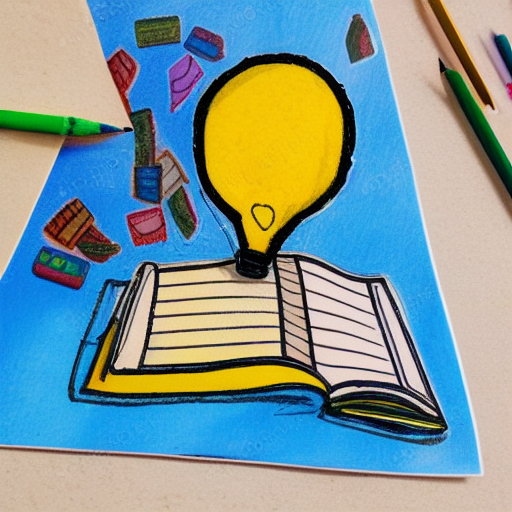
Inspiring Creativity and Motivation: Igniting the Passion for Writing with Pressto
Writing, at its core, is an art form that allows individuals to express their thoughts, emotions, and imaginations. Yet, motivating students to embrace this art with enthusiasm can sometimes be a challenge. Enter the world of inspiring and engaging writing experiences, where creativity flourishes, and motivation soars. In this blog post, we will delve into…

How Does Writing Fit Into the ‘Science of Reading’?
In one sense, the national conversation about what it will take to make sure all children become strong readers has been wildly successful: States are passing legislation supporting evidence-based teaching approaches, and school districts are rushing to supply training. Publishers are under pressure to drop older materials. And for the first time in years, an instructional issue—reading—is…

Empowering Creativity: The place for AI in Writing Instruction and Grammar
The ability and courage to develop a voice and express oneself freely and creatively is of paramount importance in early writing instruction. At Pressto, we believe that grammar and spelling can be impediments to all early writing. We’ve turned off grammar and spell checking. Kids who use Pressto write more frequently and creatively, and they…

The Role of Memory in the Writing Process
Memory plays a significant role in writing. It is through memory that writers recall past experiences, emotions, and ideas which they can incorporate into their writing. Writing often involves the expression of personal experiences and ideas, and memory helps writers to retrieve these experiences and ideas from their past. Here are some specific ways in…
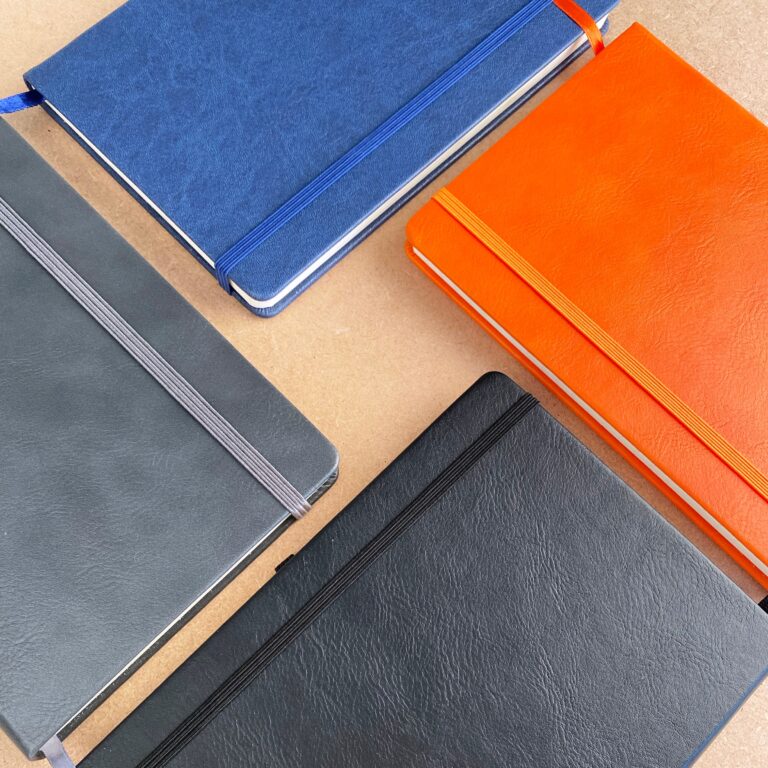
Get Motivated to Write!
Motivation plays a significant role in the writing process, as it can influence how much effort and persistence an individual puts into their writing and how motivated they are to complete a writing task. High levels of motivation can lead to better writing performance, as individuals are more likely to put in the necessary effort…

The Psychological Benefits of Journaling
Journaling, the practice of regularly writing down your thoughts and feelings, can provide a wide range of psychological benefits. Whether you are struggling with anxiety, depression, stress, or just looking for a way to process your emotions, journaling can be a powerful tool to help you achieve mental clarity and improve your overall well-being. Here…
Leave a Reply Cancel reply
Your email address will not be published. Required fields are marked *
Save my name, email, and website in this browser for the next time I comment.

Please sign in to submit your valuable feedback. Sign In or Register Now.
Writing an Identity Not Your Own
A guide for creative writers, by alex temblador, you must sign in to see if this title is available for request. sign in or register now, send netgalley books directly to your kindle or kindle app, to read on a kindle or kindle app, please add [email protected] as an approved email address to receive files in your amazon account. click here for step-by-step instructions., also find your kindle email address within your amazon account, and enter it here., pub date aug 13 2024 | archive date aug 27 2024, st. martin's press | st. martin's essentials, nonfiction (adult), description.
A practical guide to help authors authentically write and edit a character whose identity is different than their own. Do you have the tools to authentically write and edit a character whose identity is different than your own? It’s not a subject that’s generally taught in creative writing programs, and there are so few craft books and online resources on the subject. Even if you can take a seminar, class, or workshop, there’s nothing like having an easy-to-understand book on hand to provide guidance and insight every time you craft characters with historically marginalized identities. In Writing an Identity Not Your Own , award-winning author Alex Temblador discusses one of the most contentious topics in creative writing: crafting a character whose identity is historically marginalized. What is “identity,” and how do unconscious biases and bias blocks impact and influence what we write? What is intersectionality? You’ll learn about identity terms, stereotypes, and tropes, and receive genre-specific advice related to various identities to consider when writing different races and ethnicities, sexual and romantic orientations, gender identities, disabilities, nationalities, and more. Through writing strategies, exercises, and literary excerpts, writers will gain a clearer understanding on how misrepresentations and harmful portrayals can appear in storylines, dialogue, and characterization. Alex will guide writers from the brainstorming phase through the editing process so they can gain a full understanding of the complexities of writing other identities and why it’s important to get them right.
A practical guide to help authors authentically write and edit a character whose identity is different than their own. Do you have the tools to authentically write and edit a character whose identity...
Available Editions
Available on netgalley, additional information, average rating from 20 members, see all member reviews, featured reviews.
This is a FANTASTIC book to help writers improve their writing craft, teaching writers how to better understand the harm of writing characters unlike themselves from their POV is not only harmful but will end in backlash from people who KNOW you don’t know anything about what you’re writing. It’s about accountability, and treating characters with the respect you would show the very people they represent. I really enjoyed this read and believe it should be taught in classes and workshops if people need help getting out of their limited perspective. It puts into words just how limited our view of life is until someone else’s life and experiences affects our own. Fantastic read.
Writing an Identity Not Your Own, is an informative book to help writers connect with the characters they create. In this day and age it’s important when representing diversity, to write with care and knowledge. This book will help in the beginning stages as you pre-write and start to connect with characters and the direction of your book. You’ll learn about writing different race/ethnicities, sexual orientations, gender identities, disabilities, nationalities, and more. This process will help writers gain an understanding in writing other identities and how we need to give these characters the justice they deserve. While this book was informative, at times could be difficult to understand or follow. However, I do recommend to all writers especially now more than ever. Thank you to the publisher and NetGalley for a copy of this book for an honest review.
📚 PRE-PUBLICATION REVIEW 📚 "Writing An Identity Not Your Own: A Guide for Creative Writers" By Alex Temblador Publication Date: August 13, 2024 My Rating: ⭐⭐⭐⭐ The Synopsis: This book is a practical guide to help authors authentically write and edit a character whose identity is different than their own. Temblador discusses one of the most contentious topics in creative writing: crafting a character whose identity is historically marginalized. The book will guide writers through the pre-writing phase to the editing process so they can gain a full understanding of the complexities of writing other identities and why it's important to get it right. My Review: This book is a phenomenal resource for writers to utilize as they begin any new writing project! It's absolutely a book I will refer to, time and time again, as I'm creating characters and checking to ensure I'm considering the authenticity of each character's voice and perspective. What I particularly loved, was the way that Temblador walked through the process step-by-step, starting with definitions and a basic understanding of terms used in the book -- wanting to be certain the writer begins this process from the most informed spot possible. I especially loved the section about unconscious bias, confirmation bias, and bias blocks -- so helpful!! From there, the author includes a guide to walk the writer through the process of creating characters who are authentic and genuine. Temblador raises considerations that I'm not sure all writers would consider in character creation, and yet these considerations are SO IMPORTANT. I plan to use this book each time I'm preparing a character in a new project. The information is versatile for multiple genres and types of writing, yet individualized enough to work through on a regular basis in one's writings. I'm grateful to Net Galley and St. Martin's Essentials for this advanced reader's copy in exchange for my honest review!! This one will stay on my bookshelf and be an important resource in my writings! #NetGalley #WritingAnIdentityNotYourOwn #AlexTemblador

I typically don’t read much nonfiction, but when I saw Writing an Identity Not Your Own as an ARC in NetGalley, I was intrigued. Anyone who personally knows me is aware I believe representation is important, and should be represented authentically. I had high hopes, and this book delivered. Writing an Identity Not Your Own is an AMAZING resource for every person– while this focuses on authors/writers, I think anyone can read this and learn something new. Something about nonfiction that has always bothered me was how dry the genre can be (at least to me), but this book reads like a story and isn’t dry at all– I was happily surprised. The book is broken into sections and the information is given in small chunks, which makes it very manageable to read. Alex Temblador (the author) touches on so many important topics, and does it well. She makes you aware of stereotypes, tropes, gives you examples, exercises, suggestions, and so much more. I want to stress that EVERY writer should read this– we all have biases and stereotypes in our heads that society has fed us, and this does a good job of helping you realize that. Writing an Identity Not Your Own by Alex Temblador comes out on August 13th! And thank you to NetGalley for the eARC of the book!
By far, this is the single most important book that EVERY writer should purchase. Not only does Alex do a deep dive into all the aspects of writing characters that you do not identify with, she also gives an inside look as to what is happening in the publishing world. I found myself hanging on to every word as she described (with wit and intelligence) the ins and outs of inherent biases that we all carry. I also loved that she owns we are all flawed but that we must, as writers, do the research and seek answers because it is our responsibility to do so. I will admit that I am now questioning my own work in progress and wondering how the hell I'm going to ensure the communities I am writing about are a correct representation of them - I'll likely be adding even more sensitivity readers to my list! Also, I've already pre-ordered this book for all of my writer friends - it's that good and that important! Thank you to NetGalley and St. Martin's Press for an e-ARC of this book in exchange for an honest review.

What an incredibly important book! I'm so grateful to Temblador for writing this. As an author, it's important to me to include people different than myself in my books, to try to fully represent the world around us, not only because it is the right thing to do, but because I want my friends who are all unique individuals and many of whom are very different than me, to see themselves in my books and others' books as well. I also like that this book discusses issues of misrepresentation, appropriation, and stereotypes (per the back cover copy). I never try to write a main character who is an identity other than my own, but in. my real life, I am surrounded by all sorts of people, all colors, all genders and sexual orientations--I think it's so important to reflect reality in my books, but I want to do so in a respectful way that doesn't merely reflect stereotypes. While this is a constant practice, learning every day, I feel as though this book is an excellent guide book, a great start.
Writing an Identity Not Your Own is a much needed, eye opening resource. As a writer I learned so much from this book. Things I had not previously considered in my own writing. I highly recommend this book to writers of every type. Adherence to the advice and tools found in this book will save writers from heartache and possible legal woes in the future. This is definitely a book I will be adding to my library. Thank you NetGalley for letting me read this book.
Readers who liked this book also liked:

- We Are Bookish
- How It Works
- Privacy Policy
- Cookie Policy
- International
- www.netgalley.fr
- www.netgalley.de
- www.netgalley.jp
- www.netgalley.co.uk


- Writing, Research & Publishing Guides
Buy new: $18.99
Return this item for free.
Free returns are available for the shipping address you chose. You can return the item for any reason in new and unused condition: no shipping charges
- Go to your orders and start the return
- Select the return method

Download the free Kindle app and start reading Kindle books instantly on your smartphone, tablet, or computer - no Kindle device required .
Read instantly on your browser with Kindle for Web.
Using your mobile phone camera - scan the code below and download the Kindle app.

Image Unavailable

- To view this video download Flash Player
Writing an Identity Not Your Own: A Guide for Creative Writers Paperback – August 13, 2024
A practical guide to help authors authentically write and edit a character whose identity is different than their own. Do you have the tools to authentically write and edit a character whose identity is different than your own? It’s not a subject that’s generally taught in creative writing programs, and there are so few craft books and online resources on the subject. Even if you can take a seminar, class, or workshop, there’s nothing like having an easy-to-understand book on hand to provide guidance and insight every time you craft characters with historically marginalized identities. In Writing an Identity Not Your Own , award-winning author Alex Temblador discusses one of the most contentious topics in creative writing: crafting a character whose identity is historically marginalized. What is “identity,” and how do unconscious biases and bias blocks impact and influence what we write? What is intersectionality? You’ll learn about identity terms, stereotypes, and tropes, and receive genre-specific advice related to various identities to consider when writing different races and ethnicities, sexual and romantic orientations, gender identities, disabilities, nationalities, and more. Through writing strategies, exercises, and literary excerpts, writers will gain a clearer understanding on how misrepresentations and harmful portrayals can appear in storylines, dialogue, and characterization. Alex will guide writers from the brainstorming phase through the editing process so they can gain a full understanding of the complexities of writing other identities and why it’s important to get them right.
- Print length 384 pages
- Language English
- Publisher St. Martin's Essentials
- Publication date August 13, 2024
- Dimensions 5.38 x 1 x 8.25 inches
- ISBN-10 125090711X
- ISBN-13 978-1250907110
- See all details

Editorial Reviews
" Alex Temblador provides a concrete and detailed guide to the issues of misrepresentation, appropriation and stereotypes in creative writing. She asks difficult questions of writers who would wish to create characters with identities different from their own and she demonstrates not just how challenging this task can be but what is required to even approach this task with intelligence, sensitivity, knowledge and self-interrogation. In the end Temblador interrogates not just issues of craft but the biases we all carry that we may be unaware of. An essential text." -- David Mura, A Stranger's Journey: Race, Identity & Narrative Craft in Writing "Alex Temblador breaks new ground in Writing an Identity Not Your Own , guiding writers to craft characters from historically marginalized backgrounds with sensitivity and depth―a seminal guide to responsible and enriching creative writing that is both timely and timeless. Every writer who aspires to write great fiction should have this book on their shelf. It's an instant classic in the new canon of essential craft books." -Blake Kimzey, Founder & Executive Director of WritingWorkshops.com " At once accessible and forthright, Alex Temblador's WRITING AN IDENTITY NOT YOUR OWN is a helpful companion for writers. With friendliness and care, Temblador offers writer-to-writer conversations about the complexities of identity in cultural production. This book is reaching for an ever more thoughtful approach to literary representation--as writers grapple with their own and their characters' identities, positionalities, and relations of power." - Janelle Adsit, author of Toward an Inclusive Creative Writing; Co-Author, Writing Intersectional Identities
About the Author
Product details.
- Publisher : St. Martin's Essentials (August 13, 2024)
- Language : English
- Paperback : 384 pages
- ISBN-10 : 125090711X
- ISBN-13 : 978-1250907110
- Item Weight : 1 pounds
- Dimensions : 5.38 x 1 x 8.25 inches
- #1,276 in Literary History & Criticism Reference
- #11,972 in Fiction Writing Reference (Books)
- #178,438 in Teen & Young Adult Books
Customer reviews
Customer Reviews, including Product Star Ratings help customers to learn more about the product and decide whether it is the right product for them.
To calculate the overall star rating and percentage breakdown by star, we don’t use a simple average. Instead, our system considers things like how recent a review is and if the reviewer bought the item on Amazon. It also analyzed reviews to verify trustworthiness.
No customer reviews
- Amazon Newsletter
- About Amazon
- Accessibility
- Sustainability
- Press Center
- Investor Relations
- Amazon Devices
- Amazon Science
- Sell on Amazon
- Sell apps on Amazon
- Supply to Amazon
- Protect & Build Your Brand
- Become an Affiliate
- Become a Delivery Driver
- Start a Package Delivery Business
- Advertise Your Products
- Self-Publish with Us
- Become an Amazon Hub Partner
- › See More Ways to Make Money
- Amazon Visa
- Amazon Store Card
- Amazon Secured Card
- Amazon Business Card
- Shop with Points
- Credit Card Marketplace
- Reload Your Balance
- Amazon Currency Converter
- Your Account
- Your Orders
- Shipping Rates & Policies
- Amazon Prime
- Returns & Replacements
- Manage Your Content and Devices
- Recalls and Product Safety Alerts
- Conditions of Use
- Privacy Notice
- Consumer Health Data Privacy Disclosure
- Your Ads Privacy Choices
Thinking Through Our Fingers
Writing, to me, is simply thinking through my fingers. – isaac asimov, exploring your writing identity.
Who am I? Who do I want to be? How do I define myself as a writer?
We all ask ourselves these questions from time to time. Self-reflection is inevitable when we face frequent rejections and pour so much of our hearts onto the page for the sake of art. Our personal and creative identities are irrevocably linked.
Your voice is unique. Think of the countless influences and experiences that have shaped you. You are a complex, glorious being made up of every hardship, heartbreak, disappointment, desire, joy, and triumph you’ve ever known.
Your distinct writing identity stems from an endless list of factors: where you grew up, your socioeconomic status, family dynamics, belief system, schools, friends, jobs, favorite books–even the TV shows and movies you enjoy.
Are you writing the kind of books you want to write? How about the ones you have to write? Perhaps there is a certain type of book you longed for growing up, one you wished someone had written that spoke to your dearest hopes, your deepest fears.

If you find yourself examining where you are in your writing journey and where you want to go from here, try these five simple questions:
- What are your strengths as a writer?
- What genre do you enjoy writing (and reading) the most?
- What do you want to say to potential readers?
- What are your long-term writing goals?
- How would you like to grow or change as a writer?
My Happy Place is writing for middle grade readers, preferably with healthy doses of adventure, humor, and the paranormal. Moving backward through time I can clearly pinpoint several touchstones on the path that led to this point: the children’s lit class in college; the bleak novels we were force-fed in high school English; the stacks of ghost stories I devoured as a young teen; the steady diet of earnest, cheesy 1980s TV shows I adored as a kid.
I used to believe that my Happy Place was static and unchanging. But as I grow older, as I read more widely and interact with other writers, as we as a nation wrestle with our values and face our shortcomings in the struggle for social justice, I realize that my writing identity is still evolving.
As writers we owe it to ourselves and our readers to learn, to soul search, to expand our minds and hearts.
Consider writing something outside of your usual comfort zone. Read something completely new and unfamiliar. Seek out news from a wide range of reliable sources. Strike up a conversation with someone you don’t know. Plan a trip or a simple change of scenery. Wander through a new neighborhood. Observe people in new places. Engage with them. Hear what they have to say.
You will become not only a better writer but a better person, more qualified to explore, understand, and represent the human condition. You will learn to write from a place not just of sympathy but of empathy. You will speak not from secondhand knowledge but from firsthand experience.
I firmly believe that you should embrace what you feel called to write—compelled to write—without fear of judgment that your work isn’t important. When you write from a place of authenticity and a well-examined life, there will always be an audience for what you have to say.
_______________________________

Share this:

- Share on Tumblr

- Already have a WordPress.com account? Log in now.
- Subscribe Subscribed
- Copy shortlink
- Report this content
- View post in Reader
- Manage subscriptions
- Collapse this bar
Essays About Identity: 18 Writing Prompts for Students
Get inspiration for your essays about identity with these 18 inspiring writing prompts.
There are many times when a student needs to write an essay. Many colleges will ask for a personal essay when entering college, and the topic may be open-ended for these projects. You may also be asked to write a “who am I” essay for this.
Who am I essays are a great opportunity for self-reflection. You can delve into what makes you tick and what actions have defined your character over the years. Writing these essays also allows you to showcase your writing skills. However, this is one place where you have to do the writing yourself, not ask for help from a writing service with professional writers because you need to write about your own life and your experiences. Someone else cannot do this for you.
Essays about who am I can be challenging to write because they are so open-ended. Unless you have a clear direction from the assignment, you may need to get a little creative with the direction you take this essay. Here are some sample essay topics that deeply explore “who am I.” Consider using one to start your ideas flowing as you create an excellent personal essay.
For help with your essays, check out our round-up of the best essay checkers .
1. I Am a Good Leader
2. exploring my future, 3. who i want to be, 4. who i am and how i change, 5. my likes and dislikes, 6. my worldview, 7. how i am similar to my father/mother, 8. who i am in three words, 9. i am a survivor, 10. my ethnicity, 11. i am more than just good grades, 12. my bravest moment, 13. how my childhood experiences made me, 14. i am a good friend, 15. why i will succeed, 16. i am a product of my choices, 17. i am a failure (and what i learned from it), 18. i am my role in the family.

Depending on the purpose of your who am I essay, describing your leadership skills could be a great option. You could explain how your life experiences have transformed you into someone with strong leadership potential. You could explore the character traits that lend themselves well to leadership.
This essay topic has a lot of room for interpretation. For example, even if you don’t see yourself as a leader, you might have much leadership potential when you dig into your character. So, pull out that leadership and build it into a personal essay.
This personal essay topic allows you to explore what you anticipate for your future. If you are writing an essay in high school as part of the college application process, you can incorporate why you are a good fit for the school into this essay to help your essay stand out.
When exploring your future in an essay, be sure to explore who you are as a person and why your future goals make sense based on your character traits and passions. This self-reflection will make for a powerful essay.
Not all who I am essays need to be about who you currently are. Instead, you can write a powerful essay about the person you hope to become. Every human being has tremendous potential, and you can showcase that potential in an essay sample.
Think about your character traits and life goals. What could you do with those traits to reach those goals? Exploring these ideas could create a strong essay example.
The human experience is all about change. We change as we grow and develop into more mature individuals. You could explore how you change in an essay that would talk about how your growth and development make you into a better person.
Exploring things that are the catalyst for change in your life can be a good starting point for a personal essay. Since you are unique, your changes will come from a different place than other people. There is quite a bit to talk about with this topic.

Your likes and dislikes are what make you who you are. If you are focused on personal essay writing, this can be a good place to start. Because you have many things that you like or do not like, this can be a lengthy essay topic idea.
Go beyond the surface here. While you could talk about foods you like and dislike, is there something deeper you could explore? Are there particular topics that inspire you and others that turn you away? The answers to these questions will help you explore this essay topic.
A worldview is a platform through which you view the world, politics, and social concerns. It could be religious, sociological, or even ethical. Spending time figuring out your worldview helps you understand your way of relating to the world.
Once you know what your worldview is, you will be able to expound on it in your essay. Explain what you believe, but also explain why. Being able to support your reasons with self-reflection and logic will make your final essay exceptional.
Do you take after one of your parents? Compare your character traits to theirs to see how you connect. Seeing yourself in another person is a great way to reflect on what makes you, you.
Again, this is a place to dig deep. Look beyond the surface like physical characteristics and look at your character traits and how they are similar to your parent. You might find that you have quite a bit in common as you start analyzing the answer to this question.
Can you describe yourself in just three words? This essay topic is an exercise in brevity, giving you the chance to hone in on who you are. But, of course, an essay is not just three words.
Once you decide what your three words are, you can expound on them. For example, if one of your words is “student,” you can explore what that means. Likewise, if you choose to state your race, you can discuss why that is a defining feature.

Have you survived something traumatic in your life? If so, you could write an engaging essay about how you are a survivor. Many people who go through traumatic circumstances suffer a victim mentality, but you could focus on how you are choosing to be a survivor, not a victim.
Focus on the trail a little, but discuss how the trial has grown you as a person. You can show in your essay how you can move past difficulties and embrace the change that they bring. This essay can clearly show your resistance as a human being.
A person’s ethnicity is an important part of who they are. This can be an engaging essay topic, as it gives you the chance to celebrate your ethnicity, beliefs, and family history.
This topic is quite fascinating to delve into, but be careful. You do not want to come across as being fully defined by your race alone. Be sure to weave other character traits into this particular essay topic so that you come across as a well-rounded, balanced person. Remember, your ethnicity is just a portion of who you are as a whole person.
The academic world often gets too focused on grades and reports. While grades are important, you should be more than just a grade card. Hard work should matter just as much as the actual score, especially if you have some challenges that make learning and test-taking more difficult.
If you are more than just good grades, what does define you? When writing this essay, make sure you define your character traits in a positive light. Keep the essay upbeat and show how your hard work will define you even when grades do not.
Is there a time when you expressed a significant amount of bravery? It does not have to be a mountaintop rescue or a near-death experience. It could be as simple as standing up in front of a class for the first time to deliver a speech.
Find an example of bravery from your life and expound on it in your essay. Explain what made you feel afraid and how you overcame the fear to do something truly brave. Use this exploration to showcase some characteristics that help you act bravely in frightening situations.
Most people have quite a bit of development from their personal childhood experiences. Can you find some of these and point to specific ways they influenced your character as an adult? This idea could be a great way to explore who you are today.
Are you a social person because you spent a lot of time with people when you were young? Are you more introverted because you did not? You might find that your childhood significantly impacts your character, giving you an engaging essay topic to explore.
If you are a good friend to others, it says quite a bit about your character. Can you showcase how you are a good friend to others in your essay? What makes you someone people want to spend time with?
Character traits that make you a good friend can also make you a good student. Are you trustworthy or particularly friendly? These traits will help you in the classroom and your social life, so highlight them in your essay.
Do you picture yourself as a success in the future? If so, explain why in your essay. For example, you may think that you will succeed in starting your own business . Or maybe you have specific skills that make you confident of your abilities in the classroom.
Showing your confidence in your essay is helpful as you try to promote yourself to your potential college or your high school teacher. First, spend some time evaluating what it is about you that means you are likely to succeed, then compile that into an essay that shows your skills in the best possible light.
Our choices define us. Can you turn that into an essay topic? Can you showcase how your choices have created the person you are today, or can you write about one particular choice that was defining in your life?
This essay topic gives you quite a bit of time for self-reflection. You can easily highlight a particularly good choice you made or focus on a mistake and how you overcame the consequences of that mistake. Either way, you can use the choices in your life to outline who you are and why.
We all have failures in our life. This essay topic shocks the reader and gets their attention, which can make it powerful, but it also gives room to discuss failure positively. Talk about one of the biggest failures you have had in life and what you learned from it.
You can use this essay topic to transform something negative into something positive. First, think about how that monumental failure defined you and how the lessons you learned from the failure have made you a better person today.
Are you a parent, sibling, or child? Are you the only child or one of many? These family dynamics can significantly impact who you are as a person, so consider exploring them as part of your essay.
Discuss how your role within your family has defined you and what it means for your future. Focus on the strengths that your role gave you rather than any drawbacks. Remember, your essay promotes you as a person and a writer, so keep it positive.
If you are interested in learning more, check out our essay writing tips !

Bryan Collins is the owner of Become a Writer Today. He's an author from Ireland who helps writers build authority and earn a living from their creative work. He's also a former Forbes columnist and his work has appeared in publications like Lifehacker and Fast Company.
View all posts
Let your curiosity lead the way:
Apply Today
- Arts & Sciences
- Graduate Studies in A&S
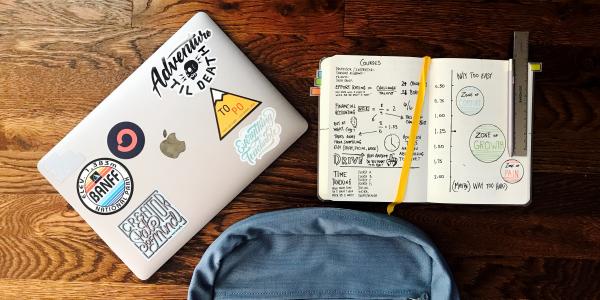
Writing Identity
College Writing, L59 114
What defines who we are and who we may become? How do class, gender, race, sexuality, and other social forces shape our identities? In what ways are our identities inherent or constructed, claimed or ascribed? In this course, we explore these and similar questions through the work of creative and critical writers, artists, and thinkers. We study key concepts such as double consciousness, intersectionality, and performativity. We consider how social dynamics, power, and privilege affect the language we use and the lives we live. All along, through writing and research assignments and class discussions, we examine and interpret visual, literary, and critical texts in an effort to define, together, what identity is and why it matters.
In The News

Reading the Visual
Student research papers from Writing Identity are featured in this REMAKE project on close reading.

Campbell named 2022 Outstanding Writing Instructor
Tarrell Campbell took home the award for Outstanding Writing Instructor at the 2022 First Year Finale.

Research Tips from Researching Identity Panelists
Panelists gave tips for dealing with the unexpected, managing your time, and making sources work for you.
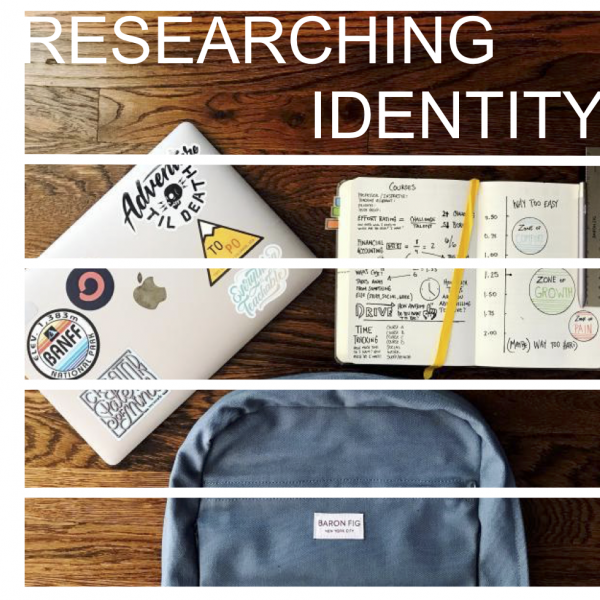
Researching Identity: A panel discussion
After discussing the influence their backgrounds have had on their research, panelists gave tips, advice and insights on conducting and writing academic research.
Theme Readings
Writing identity quote 1.png.


2 Writing Identity Quote.png

Writing Identity Quote 3.png

4 Writing Identity Quote.png

Colin Bassett
Senior Lecturer in College Writing

Deanna Benjamin
Senior Lecturer in College Writing and University College
[email protected] 314-935-6700

Tarrell Campbell
Assistant Dean in College of Arts & Sciences
[email protected] 314-935-4938

Lecturer in College Writing

Tamara Taylor

Ashni Clayton
Graduate Student, Literature

Ashley Antony
Featured student writing.

Belise Nishimwe

Black Barbie
"My lips are perfect crescent moons that spew words that burn the tips of my tongue. I hate you, I tell the white dolls that are mounted onto my cabinet drawers. Their pearl-like skin is a fresh dew that cooks in the sun ready to be consumed."
Continue reading at remake.wustl.edu >>
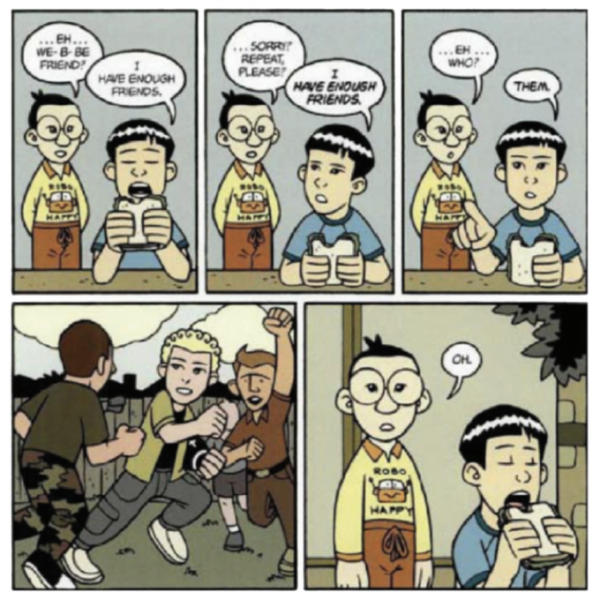
“I Have Enough Friends”: Exclusion, Assimilation and Critical Consciousness in Yang’s American Born Chinese
"When I was in middle school, my uncle, who frequently visited from Korea, gave me a seemingly innocent birthday gift. The graphic novel had a bright yellow cover with an Asian adolescent’s face overlapping from the front to the book’s spine. The boy’s hair is cut in an old-school bowl-style and he holds a transforming toy robot as mountains rise in the background. Surveying my gift, my eyes finally came upon the title, American Born Chinese . Despite being too young to fully comprehend the work’s racial commentary, I read voraciously, finishing the whole novel in a single afternoon. Even then, I understood something of the meaning of my uncle’s gift, and how it might connect to my own identity. American Born Chinese (Gene Luen Yang, 2006) tells three seemingly unconnected stories, which converge to teach the importance of self-acceptance in the context of race and ethnicity. In the narrative that interests me most here, Jin Wang, an Asian teenager, navigates coming of age in a majority-white suburb as he struggles to fit into American culture. Despite initial reluctance, he befriends the other Asian students at his school and later has a falling out with them. In the novel’s other two narratives, an American boy named Danny and Sun Wukong, the Monkey King, undergo their own adventures. The three stories connect in the end to reveal that Jin transforms into Danny after facing persistent shame and rejection due to his race. His friend, Wei-Chen, is revealed to be the Monkey King, who functions to teach Jin the book’s key lesson: Jin (and, by extension, the reader) must embrace, not feel shamed by, his Asian identity."

Associating Asia with Futurism
"It seems reasonable to conclude that this phenomenon of referencing Asian culture for the grounds of a futuristic setting is a positive step forward in the appreciation of non-western customs. The densely Chinese-populated Los Angeles depicted in Blade Runner could be simplified as recognition of the cultural impact that the real neighborhood of Chinatown has had on the United States, while the dystopian Neo Seoul of Cloud Atlas could be seen as a subtle nod towards the growing acclaim and success of South Korean popular culture across the globe. While one could argue that the exposure that techno-orientalism provides is an indirect method of recognizing diverse and foreign influences across the world and is a step forward in the predominantly white space that is western media, that claim only holds weight if it is incorrectly interpreted as a means of cultural appreciation rather than appropriation — and if its enabling of casual racism is entirely ignored as well. A closer examination of techno-orientalism will reveal its foundation in the fetishization and dehumanization of Asian peoples, and its reflection of the infamously xenophobic Yellow Peril."
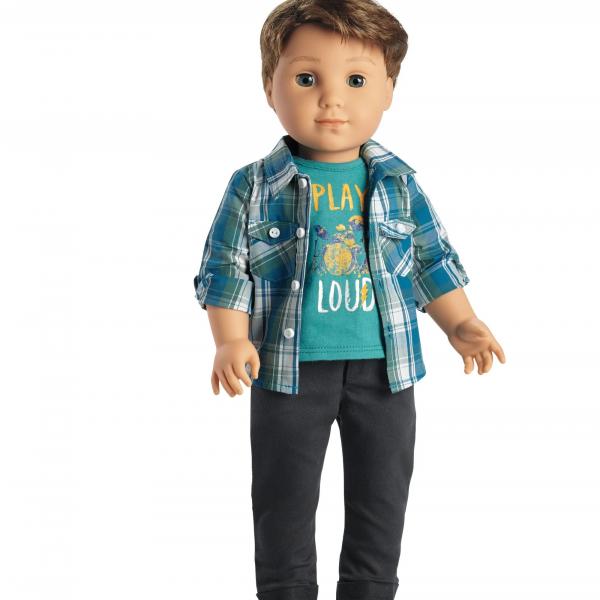
Haley Rhodes
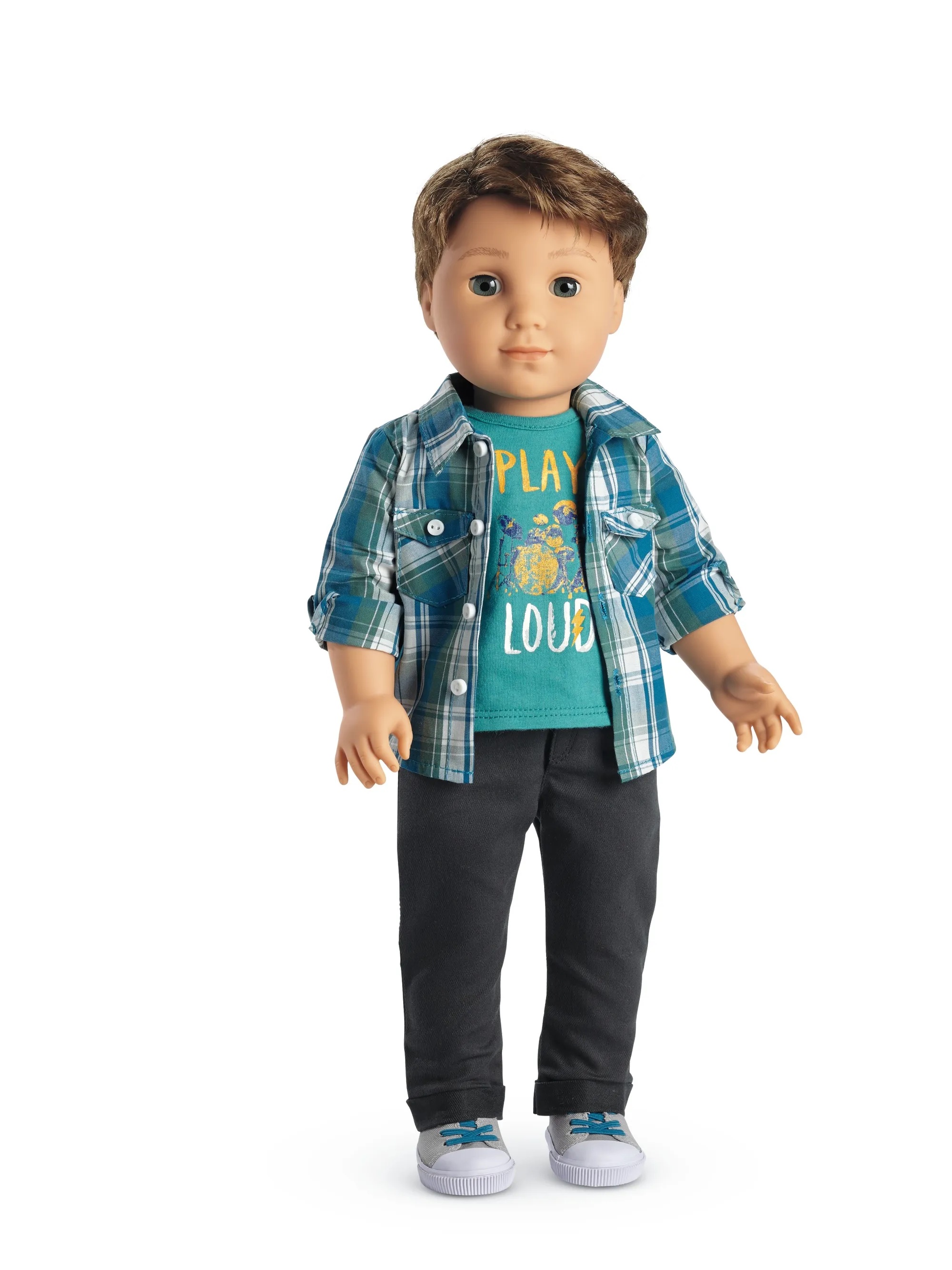
Why Can’t American Girls Just Be Girls?
"Where can you travel from the world of colonial Williamsburg to a 1914 Jewish household in New York City, to a Civil War plantation, and finally to the present-day beaches of California—all in one afternoon and without ever going outdoors? Ask that question to the owner of one of the 32 million American Girl Dolls that have been sold and they will be quick to tell you that if this is the adventure you crave, you need only visit one of the nation’s nineteen American Girl Stores. Since 1986, American Girl has celebrated young female-identifying children and empowered them to be themselves through lines of historical and contemporary dolls, accessories, books, movies, and magazines. So of course, the internet rejoiced when American Girl opened its doors to boys by introducing Logan in 2017—the first in a line of male American Girl dolls. The introduction of a male doll appears to be a step in the right direction towards a gender inclusive society that deemphasizes and challenges “differences” between girls and boys."

Micah Sandman

@Aphrodite: Tracking Women’s Objectification from Venus pudica to Instagram
"The difficult connection between beauty and morality is at the heart of matters regarding women’s objectification and self-objectification. How can we truly celebrate individualism or women’s achievement if their voice is always conditioned upon the body? Women have gained agency in their ability to represent themselves on social media, but their self-determined media presence still has everything to do with the physical self."

Silencing the Mother Tonuge
"'English only, please!' was the request I heard most during my summer language program as an international student. Despite the temptation to use our home languages, we were strictly required to speak English only both inside and outside of the classroom to capture more opportunities for practicing English. In these special programs designed for language minority students, English remained the dominant language in use, although the class consisted of one teacher as the only native English speaker and everyone else as the second language (L2) learners. In this light, the dominant language is not decided by a simple majority rule. Tove Skutnabb-Kangas, a linguist and activist against language discrimination, observed that although monolinguals are actually the minority by number, 'many of them belong to a very powerful minority, namely the minority that has been able to function in all situations through the medium of their mother tongue, and who therefore have never been forced to learn another language.'"
2.5 Writing Process: Thinking Critically about How Identity Is Constructed Through Writing
Learning outcomes.
By the end of this section, you will be able to:
- Explain the importance of communication in various cultural, language, and rhetorical situations.
- Implement a variety of drafting strategies to demonstrate the connection between language and social justice.
- Apply the composition processes and tools as a means to discover and reconsider ideas.
- Participate in the collaborative and social aspects of writing processes.
- Give and act on productive feedback to works in progress.
Now it’s your turn to join this cultural conversation. As you write, keep your audience in mind as well as the principles of inclusivity and anti-racism that you have learned about. Consider how you can share your personal experiences, ideas, and beliefs in a way that is inclusive of all and shows sensitivity to the culture of your readers.
Summary of Assignment: Cultural Artifact
Choose an artifact that symbolizes something about a culture to which you belong. This might be a physical object that you have, or it may be a metaphorical object, such as Du Bois’s color line or veil, that represents something larger about your culture. Write approximately 350–700 words describing it, using sensory detail and explaining its meaning both to you personally and within your culture. To begin your thinking, view this TEDx Talk for a discussion of cultural artifacts and narrative led by artist David Bailey.
Another Lens 1. Choose a space that is important to a cultural community to which you belong. While visiting this space, conduct an hour-long observation. Respond in writing to these items: Describe the space in detail. What do you see permanently affixed in the space? What activity is going on? How is the space currently used? What is the atmosphere? How are you feeling while conducting your observation? Then, do some brief research on the space (using the Internet, the library, or campus archives), and answer these questions: What is the history of the space? When was it established, and under what circumstances? How has this space been used in the past? What is your response or reaction to this history? Then write a passage in which you highlight a unique feature of the space and your cultural relationship to it.
Another Lens 2. Considering Du Bois’s theory of double consciousness, explore the ways in which you may experience competing identities or competing cultures in your own life. What experiences have you had or witnessed where language clashed with or supported your identity or culture? What happened? How did others react? How did you react? What insight does your experience offer on this discussion of rhetoric and the power of language to define, shape, and change or give birth to identity or culture?
Quick Launch: Joining the Dialogue
You may choose to use journaling to develop your language use and voice. Journaling, or keeping a written record of your thoughts and ideas, can clarify your thoughts and emotions, help you better understand your values, and increase your creativity. The following two journaling techniques should help you get started.
Character Sketch and Captured Moment
Because your cultural artifact may be tied to a person, a character sketch might help you think about its significance. A character sketch is a brief description of a real or fictional person—in this case, likely someone you know or even yourself. In it, you describe the character’s personality, physical traits, habits, history, relationships, and ties to the cultural artifact. You may include research about the character to introduce readers to them. Use the following format if you need more guidance:
Character Sketch
- Anecdote about the character
- Most important traits
- Physical appearance
- Ties to cultural artifact
A character sketch of your grandmother might read as follows.
student sample text My first memory of Nonna materializes in the kitchen, where we are baking Swedish cookies together. She carefully shows me how to measure ingredients, stirring with her hand over mine in her deep “cookie-making” bowl. Nonna is a slight woman with a big heart full of kindness. She teaches me many skills, both in and out of the kitchen, that I still use today. Some have proven to be life lessons. She never met a stranger she didn’t like and often said it takes more effort to be unkind than kind. Because of Nonna, the Swedish cookie has become a metaphor for my life. The ingredients of one’s life make up an identity, and the combination is always delicious. end student sample text
Another journaling technique is to record a captured moment through the examination of a cultural artifact. This exercise lets you use an artifact as a means to look at an event in your life and create a written piece that captures its importance, emotion, or meaning. Select an artifact and an experience. Think about what they mean to you. What do you remember, and why? Then go deeper. Analyze the long-term meaning of it in your life. Try to recreate the artifact and then the experience in your mind, and relive the sensations you experienced in the moment.
Choose the Artifact
Begin your assignment by choosing your artifact. You may take inspiration from W. E. B. Du Bois’s image of the veil in the annotated sample in the previous section. Or, going back to the beginning of this chapter and Sequoyah ’s syllabary, you may choose to take inspiration from something linguistic, an expression or a way of talking that is associated with your culture. You may choose an artifact that, like the veil, has metaphorical significance. Or you may choose a more tangible artifact, such as a religious symbol, a traditional clothing item, or any number of objects related to your chosen culture.
Once you have chosen your artifact, do a prewriting exercise called a freewrite . In this activity, set a time limit (say, 10 minutes), and write whatever comes to mind about your object within that time. Don’t worry about organization, flow, grammar, punctuation, or whether your writing is “good”; just write. This exercise not only gets your creative juices flowing but also allows you to put pen to paper and opens your mind to what may be subconscious thoughts about the object as it relates to culture.
Next, it is time to take a more refined approach to planning your writing. Think back to The Digital World: Building on What You Already Know to Respond Critically , which addresses the different purposes for writing. To help shape your writing use a separate sheet of paper to answer the questions in Table 2.1 .
Drafting: Critical Context
In your writing, try to incorporate and respond to the current cultural climate. Context is information that helps readers understand the cultural factors that affect your ideas, actions, and thoughts. Context helps build the relationship between you as a writer and your audience, providing clarity and meaning. For example, Du Bois’s veil means very little until readers understand the deep racial divide that existed during his lifetime, including Jim Crow laws , segregation , and violent crimes committed against his fellow Black Americans.
Cultural Context
Sharing cultural context helps your readers understand elements of culture they may be unfamiliar with. Consider what background information you need to provide, especially information that is integral to readers’ understanding of the traditions, beliefs, and actions that relate to your artifact. Essentially, you will need to close the gap between your own culture and that of your readers.
Armed with your freewrite and your answers to the questions as a starting place, create your first draft. As you write, embed cultural context and explain the significance of your artifact in a way that is relatable and meaningful to your audience. Like Du Bois, try to use figurative language, such as similes or personification, in your description, and include the relevant sensory elements of the artifact: its appearance, taste, smell, sound, and feel. See Print or Textual Analysis: What You Read for definitions and examples of some figurative language, or consult this site . Consider using a graphic organizer like Figure 2.6 as a guide. Add more outer circles if needed, and be mindful of writing in a way that it is accessible and inclusive.
Remember that your first draft is just a starting point. The most important thing is to get your ideas on paper. This draft can be considered a test of sorts—one that determines what should and should not appear in the final paper.
Consider the following sensory description of Broadway in New York, written by British novelist Charles Dickens (1812–1870) in his book American Notes for General Circulation (1842). What does Dickens, as a British observer, note about this street in America? How does he use language to convey what he sees, hears, and smells? In what ways does he use language to convey a British viewpoint?
public domain text Warm weather! The sun strikes upon our heads at this open window, as though its rays were concentrated through a burning-glass; but the day is in its zenith, and the season an unusual one. Was there ever such a sunny street as this Broadway! The pavement stones are polished with the tread of feet until they shine again; the red bricks of the houses might be yet in the dry, hot kilns; and the roofs of those omnibuses look as though, if water were poured on them, they would hiss and smoke, and smell like half-quenched fires. No stint of omnibuses here! Half-a-dozen have gone by within as many minutes. Plenty of hackney cabs and coaches too; gigs, phaetons, large-wheeled tilburies, and private carriages—rather of a clumsy make, and not very different from the public vehicles, but built for the heavy roads beyond the city pavement. . . . [C]oachmen . . . in straw hats, black hats, white hats, glazed caps, fur caps; in coats of drab, black, brown, green, blue, nankeen, striped jean and linen; and there, in that one instance (look while it passes, or it will be too late), in suits of livery. Some southern republican that, who puts his blacks in uniform, and swells with Sultan pomp and power. Yonder, where that phaeton with the well-clipped pair of grays has stopped—standing at their heads now—is a Yorkshire groom, who has not been very long in these parts, and looks sorrowfully round for a companion pair of top-boots, which he may traverse the city half a year without meeting. Heaven save the ladies, how they dress! We have seen more colours in these ten minutes, than we should have seen elsewhere, in as many days. What various parasols! what rainbow silks and satins! what pinking of thin stockings, and pinching of thin shoes, and fluttering of ribbons and silk tassels, and display of rich cloaks with gaudy hoods and linings! The young gentlemen are fond, you see, of turning down their shirt-collars and cultivating their whiskers, especially under the chin; but they cannot approach the ladies in their dress or bearing, being, to say the truth, humanity of quite another sort. Byrons of the desk and counter, pass on, and let us see what kind of men those are behind ye: those two labourers in holiday clothes, of whom one carries in his hand a crumpled scrap of paper from which he tries to spell out a hard name, while the other looks about for it on all the doors and windows. end public domain text
Now, how might Dickens go on to provide context and make connections between British and American cultures so that readers understand both more keenly? Although American Notes is generally critical of the United States, this description creates a positive mood, as if Dickens recognizes something of home during his visit to Broadway—a cultural artifact. This recognition suggests that moments of unexpected joy can create connections between cultures.
Peer Review:
One of the most helpful parts of the writing process can be soliciting input from a peer reviewer. This input will be particularly helpful for this assignment if the peer reviewer is not a member of the culture you are writing about. An outsider’s view will help you determine whether you have included appropriate cultural context. Peer reviewers can use the following sentence starters to provide feedback.
- One piece of your writing I found meaningful was ________.
- Something new I learned about your culture is ________; you explained this well by ________.
- Something I was confused by was ________; I don’t understand this because ________.
- A major point that I think needs more detail or explanation is ________.
- In my opinion, the purpose of your paper is ________.
- To me, it seems that your audience is ________.
- I would describe the voice of your piece as ________.
- I think you could better build cultural context by ________.
Writing is a recursive process; you will push forward, step back, and repeat steps multiple times as your ideas develop and change. As you reread, you may want to add, delete, reorder, or otherwise change your draft. This response is natural. You may need to return to the brainstorming process to mine for new ideas or organizational principles.
As you reread and prepare for revisions, focus on the voice you have used. If a friend were to read your draft, could they “hear” you in it? If not, work on revising to create a more natural cadence and tone. Another area of focus should be to explain cultural context and build cultural bridges. Use your peer reviewer’s feedback to develop a piece that will be meaningful to your audience.
While describing your artifact is likely a deeply personal endeavor, an important part of writing is to consider your audience. Composition offers a unique opportunity to build and share cultural understanding. One way to achieve this goal is by using anti-racist and inclusive language. Try to view your composition from outside of your own experience.
- Is any language or are any ideas harmful or offensive to other cultures?
- Are you using the language of preference for a specified group?
- Can people of various abilities read and understand your writing?
One overarching strategy you can use for anti-racist revision is to constantly question commonly used words and phrases. For example, the word Eskimo is a European term used to describe people living in the Arctic without regard for differentiation. The term was later used to describe a popular frozen treat known as an Eskimo pie . Today, the term is considered offensive to Inuit communities—Indigenous people living in Alaska, Canada, and Greenland. You can also make yourself aware of the evolving preferences for language use. For example, the term Negro gave way to African American , which is now giving way to the term Black . Finally, consider the use of the word see , for example, to mean “to understand”: Do you see what I mean? Is the use of see in this way inclusive of a visually impaired person who may be reading your text? To start, determine one or two places to include anti-racist or inclusive language or ideas in your writing, and build those into your piece.
As an Amazon Associate we earn from qualifying purchases.
This book may not be used in the training of large language models or otherwise be ingested into large language models or generative AI offerings without OpenStax's permission.
Want to cite, share, or modify this book? This book uses the Creative Commons Attribution License and you must attribute OpenStax.
Access for free at https://openstax.org/books/writing-guide/pages/1-unit-introduction
- Authors: Michelle Bachelor Robinson, Maria Jerskey, featuring Toby Fulwiler
- Publisher/website: OpenStax
- Book title: Writing Guide with Handbook
- Publication date: Dec 21, 2021
- Location: Houston, Texas
- Book URL: https://openstax.org/books/writing-guide/pages/1-unit-introduction
- Section URL: https://openstax.org/books/writing-guide/pages/2-5-writing-process-thinking-critically-about-how-identity-is-constructed-through-writing
© Dec 19, 2023 OpenStax. Textbook content produced by OpenStax is licensed under a Creative Commons Attribution License . The OpenStax name, OpenStax logo, OpenStax book covers, OpenStax CNX name, and OpenStax CNX logo are not subject to the Creative Commons license and may not be reproduced without the prior and express written consent of Rice University.

TWO WRITING TEACHERS
A meeting place for a world of reflective writers.
How Do We Develop a Writing Identity?
I am a writer.
There was a time in my not-so-distant past when I never would have uttered those words. I didn’t believe them. After all, I had no published work. I was not getting paid to write. How could I call myself a writer?
Those two things are still true – I have no published work and I don’t get paid to write. Yet, I do consider myself a writer today. Why?
I have been grappling with this question for some time now. Not so much as it applies to me, but rather how it might apply to our students. I see so many kids who “do” writing workshop. They are engaged and attentive during instruction. They write every day in accordance with whatever writing unit they are currently studying. They share during reflection time. However, they don’t really consider themselves writers the same way they might consider themselves soccer players or ballerinas or video game players. They don’t talk about themselves as writers. They have no writing identity.
This is the crux of the matter: how might we help kids build a writing identity? Where does identity come from anyway?
When I consider my own writing journey, I realize it was when I finally gave myself t ime and space to write what was in my heart that I began to consider myself a writer. Specifically, it was when I started blogging and writing stories about my family and my daughters. Once I embraced my own agency as a writer, other factors began to develop as well. I started to make time for writing. I found a real audience for my writing. I started to develop my own writing process. I started to love writing . Eventually, writing became a part of who I am.
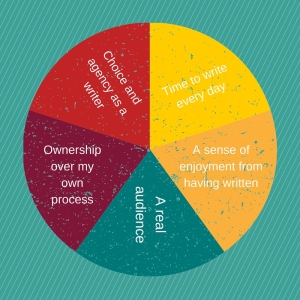
Reflecting on my own journey makes me wonder how we could help our students develop writing identities as well. I want our students to leave our classrooms not just with a portfolio of completed writing projects but with the steadfast belief that they are writers with a process, an audience, and a certain agency all their own. All students, not just those with a fondness or a capacity for writing.
It is a tall order, I know, but I think maybe it all starts with having choice and the space to write what is in our hearts.
I would love to hear your thoughts about the idea of developing writing identities. Please share in the comments below.
Share this:

Published by Dana Murphy
Literacy Coach, Reader, Writer View all posts by Dana Murphy
21 thoughts on “ How Do We Develop a Writing Identity? ”
Dana, this is a wonderful post. I’ve so enjoyed reading the comments and thoughts others have shared. Like Lisa, I’m inspired to have a conversation with my first graders about their writing identities and plan to do so today! One thing that we do in my classroom is to recognize inspiration from other authors, including classmates. It is not uncommon to hear a student say, “Oh, I was inspired by J’s poem.” or “I used repetition just like Kevin Henkes.” We put ourselves in the “author’s club” when we use these phrases. We recognize that authors use craft moves and so do we and we document examples of both on classroom charts. I do whatever I can to highlight connections that link all writers, published inside or outside the classroom. I think this helps students to see themselves as writers, too, but I know there’s more I could do–finding authentic purposes, audiences, etc. Thanks to you and to all the commenters for a thought-provoking discussion!
A blog IS publication, so you may as well claim it 😉
Like Liked by 1 person
This conversation is hitting me right where I am. Even though I have not published, writing workshop has planted the seed for writing in my life. I now am writing two hours daily, 7-9. Blogging was also the game changer for me. I started in 2006. I’m so grateful to hear all these affirming stories about writing. It gives me the motivation and encouragement I need to keep at it.
Peter Elbow calls writing “slow underground learning.”
The biggest paradigm shift I have made in the area of writing happened as a result of participating in the SOL16 March Challenge. Before that time, I was a teacher of writing. I read about writing. I attended writing classes. I had a writer’s notebook in which a few demonstration seeds had been planted and I tried out a few ideas (also for the purpose of teaching)-that’s it.
After I participated in the SOL16, I knew what it meant to BE A WRITER! I was on the look-out for writing ideas all throughout my day. My camera was my friend. My notebook was in my purse, awaiting scribbles of ideas. I was thinking about writing almost every minute of the day. And…I wrote each day. (Interestingly enough, these have been mini lesson topics in my class!)
How do I know I’m a writer? I write. And…I tell everyone about my writing experience. It may sound lame, but I am excited about writing! I have shifted my teaching ideas. I want my students to experience what I did and the transformation it brought. I want my students to know what it is to write like that: to scour their world for ideas, to publish for others, to write for an audience that READS what they write, to be on pins and needles waiting to read others’ comments, etc.
I think to shift students’ thinking from the task of writing in Writer’s Workshop to the idea of, “I am a writer”, they have to experience what I experienced. To this end, I am working on developing a small “replica” of the SOL challenge. I’ll let you know what students think when they are done.
P.S. Thanks Two Writing Teachers for transforming me so that I can now say, “I am a writer.”
Me too! Blogging and the SOLSC was a game-changer for me and for many of my colleagues.
Your third paragraph totally resonates with me and I love the phrase “to scour their world for ideas.” For me the SOLSC last March (2015) was a huge influence in my writing life. It’s when I recognized the power of daily writing and then the Tuesday slices inspired me to keep going. While I don’t write everyday, I feel better when I do. Thanks Two Writing Teachers!!!
Brilliant post that really has my head churning! I love how you include writer right next to ballerina, soccer player, or gamer. This really hits home for me as a second grade teacher. Sometimes at this point in the year I fret…will they continue daily writing over the summer? Will they publish books next year even if their classroom doesn’t have writing workshop? Will they grab a pencil or ipad to jot down their wonderings? Yes….yes they will because we ARE writers!
How do you nurture that in your classroom, Lisa? How can you be sure they are wearing that label of writer? I’m so curious.
Your post inspired me to have a conversation with my class about writing identity, Dana. While I clearly see the kids as writers, and was hopeful they indeed shared that identity….I thought it would be interesting to hear their thinking. I used your words about how we call ourselves soccer players, dancers, skateboarders, swimmers…how about writers? Many nodded their heads enthusiastically. One student said “we’re good at it and feel comfortable”. In the classroom we can foster developing writing identity: *calling students writers-name it *modeling and encouraging a variety of genres (lists, charts, poetry, wonderings, fairy tales, letters) *writing across the day, in every subject *gifting idea notebooks, sticky notes, flair pens (I encourage parents to use as stocking stuffers) *collect interesting words from books on a board in classroom *host writing celebrations *connect book love to our writing (let’s try what Cynthia Rylant did…)-highlight authors as the rock stars they are! *develop a class mantra-we have stories to tell, feelings to express, wonderings to ponder, memories to hold, gratitude to give…
Wonderful post! Definitely food for thought. I think the students in our classrooms have to feel like they have choice, time and ownership of their learning. That is why the workshop model is so helpful for student writers. And when students learn that writing is something they can do beyond school and beyond required writing, they come to recognize themselves as writiers. They begin to build their writer identity. It’s a delicate balance of learning, discovery and joy.
Yes, I know choice is so important. Even within the workshop model, Karen, I see a lot of “confined choice” – not real, wide-open choice. How can we change that?
Choice and space to write what is in our hearts! I’m so fearful that on demand writing with no choice is taking away the voice of our student writers. Would love to hear what teachers are doing to nurture writers over the summer.
Yes, I hadn’t thought about summer writing – or writing beyond the walls of the classroom. How can we get kids to want to write… beyond us?
It seems that the first step to finding ways to help our students see themselves as writers is to be writers ourselves. Without that experience, it would be so hard to have this kind of insight. I think that is a huge hurdle- because many who teach writers don’t see themselves as writers. Your post has me thinking. Thank you for these wise words.
As a student, I had a friend who told me that I had a nice style and that I should be writing. (She would notice that from our school work or our texting 😀 ) The very few times I would write were when I was in a bad emotional state, as a way of letting things out, but it never was and still not my thing. For me,emotions are so hard to deliver through words and I end up throwing what I write thinking it’s too poor to live up to what I really feel. Along came my blog’s idea and one day I started writing an article (Nothing personal or sentimental). It worked! Although I haven’t been actively blogging and still a beginner, I can say it worked because I, for the first time, like what I wrote – like it enough to share it. I agree with the factors u stated above,Dana, and I’m sharing this to enhance the importance of appreciating one’s own work in developing one’s writing identity.
Blogging was a game-changer for me, too. What is it about the experience of blogging that we can replicate in our classrooms? Is it the audience? The choice? What can we generalize from our experience? These are things I wonder about…
Audience – YES! Choice – YES! Daily – YES! This is what we need in our classrooms!
I would say it is fundamentally inspiration and definitely choice. No one is obliged to go online and start a blog. We do it because we are inspired by something, whether it’s our daily life or financial crises through history… Students are supposed to be helped to find inspiration. Tasteless assignments are not expected to bring out much creativity..
This is such an important post. I’ve been thinking ahead to summer and how to help/inspire my students to write, but I think it all goes back to identifying as a writer. If you are only writing in class and don’t see the purpose outside of the classroom, you aren’t seeing yourself, truly, as a writer. Agency, choice, freedom to share your passions & interests when writing…I think these are all important components of building that identity. I also think that the teacher sharing authentically how he/ she really writes for real world reasons is critical to show students the possibilities. I am looking forward to reading others ideas!
A few months ago my students took a survey from Ralph Fletcher and he asked the question, “Are you a writer?” The answers were varied but for the most part my students felt like they had to be published to be a writer. One student said yes because she has written 3 books. Perspective is everything. I struggle with this identity, too, even though I have a published book and write every day. Why is this label so precious? I have no trouble calling myself a teacher or a reader. In writing project workshops, we would be asked to turn to another and say with conviction, “I am a writer.” Maybe we just need to have this mantra start workshop every day.
Comments are closed.

- Already have a WordPress.com account? Log in now.
- Subscribe Subscribed
- Copy shortlink
- Report this content
- View post in Reader
- Manage subscriptions
- Collapse this bar

Creative Writing for Critical Thinking
Creating a Discoursal Identity
- © 2018
- Hélène Edberg 0
Södertörn University, Stockholm, Sweden
You can also search for this author in PubMed Google Scholar
- Introduces a new analytical model, based on activity theory, making it possible to analyse learning through writing in student texts
- Examines student trajectories as they learn to think critically through creative writing
- Offers practical advice as well as theoretical grounding to support this new approach
12k Accesses
6 Citations
2 Altmetric
This is a preview of subscription content, log in via an institution to check access.
Access this book
- Available as EPUB and PDF
- Read on any device
- Instant download
- Own it forever
- Compact, lightweight edition
- Dispatched in 3 to 5 business days
- Free shipping worldwide - see info
- Durable hardcover edition
Tax calculation will be finalised at checkout
Other ways to access
Licence this eBook for your library
Institutional subscriptions
Table of contents (10 chapters)
Front matter, introduction.
Hélène Edberg
Creative Writing and Critical Thinking: From a Romantic to a Sociocritical View on Creative Writing
Basic outlines of the research, discoursal identity and subject, text as a site of negotiation: a model for text analysis, writers’ positions, critical metareflection, a follow-up study: creative writing for critical metareflection in a different context, concluding discussion about discoursal identity and learning critical thinking through creative writing, creative writing for critical metareflection: some educational implications, back matter.
- discourse analysis
- textual analysis
- meta-reflection
- creative writing
- identity negotiation
- critical thinking
- literary diction
About this book
Authors and affiliations, about the author, bibliographic information.
Book Title : Creative Writing for Critical Thinking
Book Subtitle : Creating a Discoursal Identity
Authors : Hélène Edberg
DOI : https://doi.org/10.1007/978-3-319-65491-1
Publisher : Palgrave Macmillan Cham
eBook Packages : Social Sciences , Social Sciences (R0)
Copyright Information : The Editor(s) (if applicable) and The Author(s) 2018
Hardcover ISBN : 978-3-319-65490-4 Published: 20 February 2018
Softcover ISBN : 978-3-319-88041-9 Published: 11 May 2019
eBook ISBN : 978-3-319-65491-1 Published: 08 February 2018
Edition Number : 1
Number of Pages : IX, 416
Number of Illustrations : 2 b/w illustrations, 2 illustrations in colour
Topics : Discourse Analysis , Language and Literature , Stylistics , Creative Writing , Popular Science in Linguistics
- Publish with us
Policies and ethics
- Find a journal
- Track your research
Academia.edu no longer supports Internet Explorer.
To browse Academia.edu and the wider internet faster and more securely, please take a few seconds to upgrade your browser .
Enter the email address you signed up with and we'll email you a reset link.
- We're Hiring!
- Help Center

SECOND LANGUAGE CREATIVE WRITERS: Identities and Writing Processes

https://channelviewpublications.wordpress.com/2015/01/27/second-language-creative-writers/ http://www.multilingual-matters.com/display.asp?isb=9781783092994 Focusing on the notion of identity, this book elicits L2 creative writers’ own perspectives of their life histories through the form of interviews and think-aloud story writing sessions, and investigates the writers’ emerging writing processes. It integrates socioculturalist L2 identity studies with the typically cognitivist process-oriented L2 writing research.
Related Papers
http://www.tandfonline.com/eprint/PGggjB8G4g2a8uEYgNXs/full This study examines the personal identities and cognitive writing processes of two adult second language (L2) creative writers. Adopting a sociocultural stance, it identifies the L2 writers as social agents whose creative expression, self-perceptions and language are intrinsically bound together. Through interviews and think-aloud story writing sessions, the study investigates the L2 writers’ identities through analysing the individuals’ self-recounts of creative writing experience and their cognitive writing processes when engaging in particular story writing tasks. The two writers are found to demonstrate distinctive ‘personalities’ throughout their cognitive writing process, which are associated with their previous cultural linguistic experiences. The study argues that the practice of L2 creative writing can be performed by L2 users not only for purposes of language or literacy acquisition, but also as a self-empowering tool to achieve particular social positioning and hence self-esteem. The insights hold pedagogical values for language and writing classroom.
Asma Mansoor
For Jacques Derrida, language is a habitat that contours one's " ipseity " (1). He addressed the complexity generated in one's sense of the self when one speaks a language that is not one's own, but a legacy of the colonial experience which has erased the language of the colonized. Yan Zhao's monograph entitled Second Language Creative Writers: Identities and Writing Processes explores the configuration of writer identities and writer voices of Second Language Creative Writers who have access to both their first and second languages. The linguistic habitat of these second language creative writers is a mélange of various linguistic paradigms that have played a pivotal role in the constitution of their subjectivities. As Zhao meticulously traces the connection between the identities and the cognitive writing processes of 15 advanced level L2 Creative Writers in the United Kingdom through discourse analysis, this important work does not only cover how social processes and human cognition are interconnected , it also operates as a work that could function as a base for devising new ways of analyzing the subjective coordinates of L2 writers vis-à-vis the target language and also the socio-political contexts within which the target language is spoken. In her work under review here, Yan Zhao interweaves Community of Practice (CoP) theories with Post-structuralist thought in order to analyze the imbrication of the socio-cultural paradigms, histories and interactions within the creative writing processes of L2 writers and their identity construction. Zhao sees their modes of writing as " idiosyncratic performances " (Zhao 7; italics in original) stemming from their agentive choice of engagement with specific discourses, ideological angles, writing mechanisms , etc. In doing so, they " perform " (Zhao 3) specific configurations of identity which remain functional in multiple spheres of existence. One of the important areas that this work opens up for further exploration is the engagement of prior social and linguistic experiences in the performative enactment
This study examines the cognitive writing processes of three ESL creative writers. Adopting a sociocultural stance, it identifies the writers as social agents with particular self-perceptions and purposes behind their creative writing practices. Through interviews and think-aloud story writing sessions, the study finds that the writers‘ present cognitive writing processes are mediated by their previous creative literacy experiences which are embedded in particular situations and embody certain values. The discussion traces the learners‘ self-representational and hence idiosyncratic movement of thought emergent in immediate creative writing tasks. It argues that the practice of L2 creative writing in pedagogic contexts can be enhanced and rationalised through a deeper understanding and appreciation of how creative writing can be performed by L2 users not only for purposes of language or literacy acquisition, but also as a self-empowering tool to achieve particular social positioning and hence self-esteem.
Darío Luis Banegas
Shizhou Yang
Although it is commonly known now that multilingual writers’ identities are multiple, complex and dynamic, much remains unknown about how autobiographical writing in a second language mediates the writers’ identity work. Taking a transnational perspective to language and identity, this article analyzes a Chinese university student’s autobiographical writing in English and its multiple drafts in a writing circle over nine months in light of the student writer’s drawings and interviews. The study reveals three potential phases of identity work, i.e., performing, reflecting and re-visioning, that multilingual writers may experience as they engage in autobiographical writing in a second language. Pedagogical implications of these findings are discussed. orcid.org/0000-0002-8113-4689
New Directions
Brian Cullen
Frontiers in Psychology
The past two decades have witnessed a burgeoning literature on L2 writers' identities, especially their discoursal identities. In contrast, little attention is paid to the writers' felt sense of self when they write in an L2, which is an integral dimension of their autobiographical self. In this article, we provide empirical evidence of the nature of this aspect of L2 writer identity. To illustrate, we analyzed linguistic metaphors elicited from three groups of L2 writers (N = 83), majoring respectively in Thai, Japanese, and English in a Chinese university. Descriptive analysis shows that, due to challenges in content, language, organization, and cultural differences, a majority of L2 writers, especial Thai and Japanese L2 writers, experience a diminishing sense of self when they write in L2. In contrast, some L2 writers, especially English L2 writers, find writing in an L2 liberating, revealing the impact of their individual learning trajectories and pedagogical practices ...
International Journal of Humanity Studies (IJHS)
Dewi Widyastuti
Creative writing is created for aesthetic rather than informative purposes and its creation is greatly influenced by the writers’ background. Thus, how the writers’ perception of themselves or their identities are expressed in the creative writing products. As such, creative writing in the English as a foreign language (EFL) context may offer a space for foreign language learners to express their perceived identities. In this study, an analysis of two short stories written by students of the English Letters Department, Universitas Sanata Dharma, Yogyakarta, Indonesia, revealed that the students’ perceived identities were used as the resources for their creative writing outputs. In the first short story entitled “Calling Him Back”, through the internal conflicts of the main character, the student writer expressed her doubt as to which identities to claim. In the second short story entitled “Happy Birthday”, the student writer exploits her identities as a literature student when she d...
Book chapter in Dan Disney (ed.), Exploring Second Language Creative Writing: Beyond Babel (pp. 119-138).
Grace V. S. Chin
In this chapter, I explore how recent studies of creative writing have moved away from prevailing ideas of individual creative acts to explore the social dimensions of creativity. Using a sociocultural approach, I examine the interrelated notions of identity, language, and place by investigating L2 creative writing, specifically playwriting, as a social, learning process within the postcolonial, bilingual, and sociocultural contexts of Brunei Darussalam. The theories of Vygotsky and Foucault are expanded on to show how creative writing (SL) classes are interactional spaces where students actively engage each other as a community of writers; in the process, they co-construct both knowledges and identities as emergent L2 writers.
Critical Transitions: Writing and the Question of Transfer
Ketevan Kupatadze
RELATED PAPERS
Rose Meireles
Revista do Instituto Geológico
Maria Cristina Motta Toledo
Marco Moniz
Pramodh Seneviratne
Acta bio-medica : Atenei Parmensis
Ashraf Soliman
Advances in Agroecology
David Conner
Juan Carlos Restrepo Salcedo
The American Journal of Medicine
Angelo Licata
Forma Y Funcion
Olga Ardila
ARON PANGIHUTAN PARDEDE
Aron Pardede
Microbial Biotechnology
Bhima Bhukya
Journal of Clinical Ultrasound
Ahmet mete DOĞAN
South African Journal of Economics
Sami Alpanda
saverio mecca
tuti widyaningrum
Global Ecology and Biogeography
Katie Manning
Australian Journalism Review
colleen murrell
Nortoji A . Khujamshukurov
Revista da Associação Médica Brasileira (English Edition)
Danilo Ferreira Viana
The American journal of tropical medicine and hygiene
Ahmad Rufa'i Abdullahi
cult.ufba.br
Sabrina Luna
Caderno Crh
Amilcar Baiardi
HAL (Le Centre pour la Communication Scientifique Directe)
Philippe Chrétienne
Annals of Epidemiology
Mike Andrew
RELATED TOPICS
- We're Hiring!
- Help Center
- Find new research papers in:
- Health Sciences
- Earth Sciences
- Cognitive Science
- Mathematics
- Computer Science
- Academia ©2024
Want to create or adapt books like this? Learn more about how Pressbooks supports open publishing practices.
Garrett Moore

Eccles, J. S., & Wigfield, A. (2002). Motivational Beliefs, Values, and Goals. Annual Review of Psychology, 53(1), 109-132. doi:10.1146/annurev.psych.53.100901.135153
Master, A., Cheryan, S., & Meltzoff, A. N. (2016). Motivation and identity. Handbook of Motivation at School, 300-319.
Setting the Stage: A Guidebook for Optimizing Learning Contexts Copyright © 2020 by Garrett Moore is licensed under a Creative Commons Attribution-NonCommercial-NoDerivatives 4.0 International License , except where otherwise noted.
Share This Book

Creating Identity and Building Community Through Writing
Project Mend has earned support from Humanities New York, the Syracuse University Humanities Center, Engaged Humanities Network, the SOURCE, the Department of Writing Studies, Rhetoric and Composition, and a CUSE research grant.
April 22, 2024 · By Lesley Porcelli
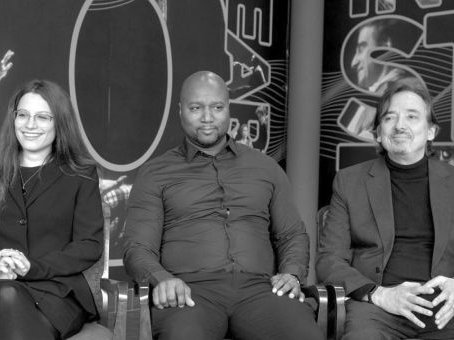
Project Mend team members Katherine Nikolau ’24, Michael J. Willacy
and Patrick W. Berry serve as panelists at a Syracuse Stage event.
When students in the College of Arts and Sciences enroll in Associate Professor Patrick Berry’s class on writing and rhetoric, they likely think, correctly, that they will learn the foundations of good writing across various genres. However, they may not imagine that Berry’s vision for the class involves a less tangible side effect: building community. And that community fostered through the experience of writing and sharing work inspired Berry to found Project Mend .
This year, for the second time, Berry will be awarded a $25,000 Post-Incarceration Grant from Humanities New York to fund his work with Project Mend, an online and print magazine of works by people impacted by the criminal justice system... [ Read the full SU News article .]

Race Writing Prompts: Explore Themes of Identity
My name is Debbie, and I am passionate about developing a love for the written word and planting a seed that will grow into a powerful voice that can inspire many.

Understanding the Power of Race Writing Prompts
Insights into harnessing the potential of race writing prompts, exploring complex themes of identity, unveiling the multifaceted dimensions of racial identity, the cultural lens, experiences and intersectionality, empowering self-reflection through race writing prompts, fostering empathy and understanding through writing, tailoring writing prompts to unveil personal narratives of identity, challenging stereotypes and breaking boundaries through writing, promoting dialogue and advocacy through race writing prompts, frequently asked questions, the conclusion.
can unlock a world of creative possibilities while fostering empathy and critical thinking. These prompts provide an opportunity for individuals to explore the complex and multifaceted nature of race in our society. By delving into this topic, writers can contribute to dismantling systemic barriers and promoting inclusivity.
1. Encouraging self-reflection: Race writing prompts prompt individuals to examine their own beliefs, biases, and experiences related to race. This introspection can help writers gain a deeper understanding of themselves and their place in a diverse society. Through self-reflection, writers can identify areas where personal growth is needed, leading to increased awareness and empathy towards others.
2. Unleashing creativity: The power of race writing prompts lies in their ability to spark creativity and inspire unique storytelling. These prompts can encourage writers to explore racial experiences from different perspectives, shedding light on issues that may have been overlooked or misunderstood. By fostering creative expression, race writing prompts facilitate storytelling that can drive social change and challenge prevailing narratives.

When it comes to exploring the complex themes of identity, we dive into the very essence of what makes us unique individuals. Our identity encompasses various aspects, such as our cultural background, personal experiences, beliefs, and values, which shape our sense of self. Through self-reflection, storytelling, and engaging conversations, we embark on a journey of understanding the intricate layers that form our identity.
One way to explore these themes is by delving into the diverse perspectives shared by others. Hearing stories from people of different backgrounds, ethnicities, and cultures allows us to gain insight into their personal journeys and challenges, broadening our empathy and knowledge. By actively seeking out diverse narratives, we can expand our understanding of the multifaceted nature of identity.
Racial identity is a complex and diverse subject that encompasses various dimensions which go beyond mere physical appearance. It involves intricate layers of culture, history, experiences, and self-perception. Recognizing the multifaceted nature of racial identity is crucial in fostering understanding, promoting equality, and celebrating diversity.
One of the dimensions that make up racial identity is culture. Culture shapes our beliefs, traditions, customs, and values, providing a shared sense of belonging among individuals within a racial group. This dimension encompasses language, cuisine, art, music, literature, and other creative expressions that have been shaped by the experiences and heritage of a specific racial community. Through culture, individuals find connection, pride, and a deep-rooted sense of identity.
Racial identity is not solely defined by one’s appearance but is also shaped by the experiences individuals encounter throughout their lives. These experiences intersect with other aspects of a person’s identity, such as gender, socioeconomic status, and sexual orientation, creating a unique perspective on racial identity. Intersectionality allows us to understand that racial identity is influenced by a complex web of interconnected factors that can often create a diverse range of experiences and viewpoints even within the same racial community.

Self-reflection is a powerful tool that enables us to gain a deeper understanding of ourselves and the world around us. It allows us to explore our thoughts, emotions, and experiences, leading to personal growth and a broader perspective. One effective way to engage in self-reflection is through race writing prompts.
Race writing prompts serve as thought-provoking questions or topics that encourage individuals to examine their own racial identity and biases. By prompting introspection, these prompts help individuals uncover their beliefs and assumptions, creating opportunities for personal transformation and growth. Engaging with race writing prompts allows you to explore and unpack the complexities of race, challenge your perspectives, and build empathy and understanding.
- Gain self-awareness: Race writing prompts encourage deep introspection, prompting you to explore your own racial identity and how it shapes your view of the world.
- Identify biases and prejudices: These prompts provide a safe space for you to reflect on your biases and prejudices, helping you become aware of them and work towards overcoming them.
- Develop empathy: Writing about race allows you to step into the shoes of others, fostering empathy and a deeper appreciation for the experiences of individuals from different racial backgrounds.
In conclusion, race writing prompts provide a platform for self-reflection, enabling individuals to delve into their own racial identity and challenge their preconceptions. By engaging with these prompts, you open the door to personal growth, improved understanding, and increased empathy towards others.
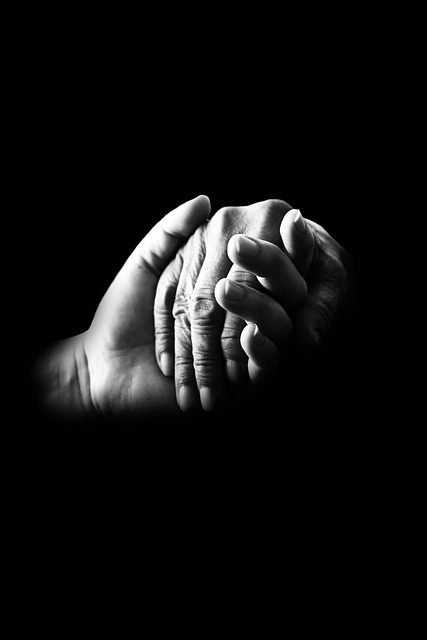
Writing has a unique power to foster empathy and understanding among individuals from all walks of life. Through the written word, we can step into the shoes of others, gaining insights into their experiences, emotions, and perspectives. It is a creative space where we can explore different cultures, belief systems, and viewpoints, ultimately building connections and breaking down barriers.
When we write, we have the opportunity to cultivate empathy by delving deep into characters’ thoughts and feelings. This exercise teaches us to view situations from multiple angles, challenging our own assumptions and biases. Moreover, writing helps us understand the complexities of human emotions and the intricacies of interpersonal relationships. It encourages us to reflect on our own experiences and share them with others, creating a sense of unity and fostering a deeper understanding of the diverse world we inhabit.
- Writing allows us to communicate our thoughts and feelings clearly and effectively.
- Through storytelling, we can capture moments of vulnerability and triumph, evoking empathy in readers.
- Writing gives a voice to those who may feel marginalized or unheard, promoting inclusivity and understanding.
In conclusion, the act of writing goes beyond the mere conveyance of information; it has the power to nurture empathy and understanding within ourselves and among others. Let us embrace this opportunity to uplift and inspire, sharing our stories, perspectives, and experiences with the world through the written word.

Writing prompts are valuable tools for encouraging self-reflection and exploring one’s personal narrative of identity. By providing specific directions and questions, writing prompts can guide individuals in uncovering their unique experiences, thoughts, and emotions related to their identity. However, to fully unveil personal narratives of identity, it is important to tailor the writing prompts to the individual’s specific background and experiences.
When crafting personalized writing prompts, consider incorporating the following elements:
- Individual background: Take into account the person’s cultural, familial, and societal background. This will help in creating prompts that allow them to delve into aspects of identity that are deeply rooted in their unique experiences.
- Thought-provoking questions: Encourage introspection by asking questions that challenge the individual’s perspectives and beliefs about their identity. This can help them delve deeper into their personal narrative and provide rich insights.
- Inclusive language: Make sure the prompts are inclusive and considerate of all identities. It is essential to create an inclusive environment that fosters honest exploration and expression.
- Open-ended prompts: Avoid prescriptive language and instead provide open-ended prompts. This allows individuals to freely interpret and explore their identity, leading to more authentic and insightful narratives.
By tailoring writing prompts to individuals, we can create a space that encourages the unveiling of personal narratives of identity. This process not only promotes self-discovery and introspection but also fosters understanding and empathy among diverse communities.

Writing has the remarkable power to challenge stereotypes and break boundaries, making it a powerful tool in cultivating positive change. Through compelling narratives and thought-provoking essays , writers can challenge preconceived notions, dismantle stereotypes, and pave the way for a more inclusive society. By boldly sharing diverse perspectives and tackling difficult topics, writers have the ability to ignite conversations, foster empathy, and inspire action.
One way writing can challenge stereotypes is by exploring the complexities of diverse experiences. Through vivid storytelling and nuanced characters, writers can humanize individuals who are often marginalized or misrepresented. By portraying individuals from different backgrounds, ethnicities, genders, and sexual orientations, writers can challenge stereotypes and show the world the richness and diversity of human life. Additionally, writing can reveal the shared emotions, hopes, and dreams that connect us all, proving that despite our differences, we are more alike than we may think.
- Breaking down barriers : Writing has the incredible ability to bridge gaps between different cultures, beliefs, and perspectives. By sharing personal stories and embracing vulnerability, writers can break down barriers of ignorance and prejudice, opening up dialogues that foster mutual understanding and respect.
- Shifting perspectives : Through the power of words, writers can challenge societal norms and shift perspectives. By presenting alternative viewpoints and shedding light on the realities faced by marginalized communities, writers can inspire readers to question their own biases and preconceptions.
- Inspiring social change : Writing has historically played a crucial role in bringing about social change. From abolitionist pamphlets to feminist manifestos, writing has been a catalyst for movements that challenge the status quo. By using their words to advocate for justice and equality, writers can galvanize individuals and mobilize communities towards a more inclusive and fair society.
Through its boundless capacity to educate, evoking emotions, and provoke critical thinking, writing possesses the power to challenge stereotypes and break the boundaries that hinder social progress. By harnessing their creativity and embracing the diversity of human experience, writers can uplift voices, challenge societal norms, and inspire a more inclusive world.

Engaging in conversations surrounding race can be challenging but is crucial for fostering understanding, empathy, and ultimately promoting positive change in society. To encourage such discussions, our platform offers a collection of thought-provoking writing prompts specifically curated to tackle various aspects of race and ethnicity. These prompts serve as catalysts for critical thinking, self-reflection, and personal growth, providing a safe space for individuals to express their thoughts and experiences.
By utilizing our race writing prompts, users are encouraged to explore their own biases, confront uncomfortable truths, and analyze the impact of systemic racism. Through introspective and honest written responses, individuals can gain a deeper understanding of the complexities surrounding race, contributing to a wider awareness of social issues that they can then translate into advocacy and informed action. Our platform aims to foster dialogue across diverse perspectives and backgrounds, allowing users to challenge their own beliefs and engage in respectful conversations with others, ultimately leading to increased empathy and a stronger sense of community.
Q: What are race writing prompts? A: Race writing prompts are thought-provoking topics or statements designed to stimulate writing and encourage individuals to explore themes related to race and identity. These prompts can help foster meaningful discussions and facilitate personal reflections on one’s own racial experiences and perspectives.
Q: Why are race writing prompts important? A: Race writing prompts provide a platform for people to engage in conversations about race, promoting better understanding and empathy. By delving into themes of identity, these prompts encourage individuals to critically analyze their own backgrounds, experiences, and biases, ultimately fostering a more inclusive and socially aware society.
Q: How can race writing prompts be used? A: Race writing prompts can be used in various settings, such as classrooms, writing workshops, or even personal journals. Educators can incorporate these prompts into their curriculum to promote diversity education and encourage students to explore their own racial identities. For individuals, these prompts can be effective tools for self-reflection and personal growth.
Q: What are some examples of race writing prompts? A: Here are a few examples of race writing prompts: 1. Reflect on a significant moment in your life where race played a defining role. How did this experience shape your identity? 2. Imagine a society where race does not exist. How does this alter your perception of the world and your place within it? 3. Write a letter to your younger self, sharing advice on how to navigate challenges related to race and identity. 4. Choose a book, movie, or artwork that has deeply resonated with you regarding race. Explain the impact it had on your perception and understanding of racial diversity.
Q: Are race writing prompts suitable for people of all racial backgrounds? A: Yes, race writing prompts can be beneficial for individuals of all racial backgrounds. Everyone, regardless of their race, has experiences and beliefs that shape their identity in relation to this topic. These prompts not only encourage people to analyze their own racial experiences but also to learn more about the experiences and perspectives of others.
Q: Can race writing prompts be controversial? A: Yes, certain race writing prompts may touch on sensitive topics and evoke strong emotions. However, it is important to approach these prompts with respect, open-mindedness, and a willingness to engage in constructive dialogue. By creating a safe and inclusive environment, these prompts can lead to productive conversations that promote understanding and positive change.
Q: How can race writing prompts contribute to societal change? A: Race writing prompts can spark conversations that challenge and dismantle stereotypes, biases, and systemic racism. By examining personal experiences and reflecting on societal issues through these prompts, individuals can gain a deeper understanding of race-related topics. This increased awareness can inspire action, advocacy, and contribute to creating a more equitable and just society.
In conclusion, race writing prompts serve as powerful tools to delve into themes of identity, sparking self-reflection and empathy in a diverse society.
Preservation Purposes: What Is the Purpose of a Write Block Device
SSAT Writing Prompts: Conquer the Writing Section
Leave a Comment Cancel reply
Save my name, email, and website in this browser for the next time I comment.
Reach out to us for sponsorship opportunities.
Welcome to Creative Writing Prompts
At Creative Writing Prompts, we believe in the power of words to shape worlds. Our platform is a sanctuary for aspiring writers, seasoned wordsmiths, and everyone. Here, storytelling finds its home, and your creative journey begins its captivating voyage.
© 2024 Creativewriting-prompts.com
This is a podcast about stories, place, and identity from students at the UBC Creative Writing Department in Vancouver, BC. Featuring multi-genre writing, music, cooking, experiments with sound design, plus crucial advice for lighting a campfire, setting up a creative space, and general exploratory weirdness. If you like writing, and want an insider's glimpse into the creative minds of undergrads at UBC -- this podcast is for you! Note: The University of British Columbia is located on the traditional, ancestral, and unceded territory of the Musqueam people.
What Should We Call This? UBC Creative Writing Students
- APR 21, 2024
Campfire Songs
In “Campfire Songs,” Hailey Clark has a conversation with pop-rock Vancouver songwriters— Alanna and Brianne Finn-Morris of the band Fionn— by a crackling campfire. In this intimate chat, the twin-sister duo reminisce about their nostalgic music memories, share honest songwriting advice, and tell us about the places that sparked their love of music. The band shares a campfire song from their own repertoire— “Waves”— in a cozy performance that closes out the campfire. This episode is perfect for songwriters and music lovers alike! Follow Fionn’s music on Instagram and Tiktok @fionnband or through their website fionnband.com. --- Send in a voice message: https://podcasters.spotify.com/pod/show/what-should-we-call-this/message
Join Mina Han as she discusses the varied nature of depression, the stigma that surrounds it, describes some of its common symptoms… and makes a tasty depression dessert! (If you or someone you know needs help, visit https://www.helpguide.org/find-help.htm to find a hotline geared to your situation and geographic location) --- Send in a voice message: https://podcasters.spotify.com/pod/show/what-should-we-call-this/message
Campus Clock Catastrophe
Greetings, adventures! Fancy an exploration quest through the Griffon’s Nest Tavern and the Irving Academy of Magic, do you? Grab your headphones and dive right in tosave UBC from a mysterious time spell! You best be quick; the clock’s ticking. Campus Clock Catastrophe is an interactive fantasy fiction podplay piece inspired byDungeons and Dragons. This episode by Michelle Bettauer focuses on a walkable path from the UBC Student Nest to the K. Irving Learning Centre Ridington Room and the Ladner Clock Tower. Listeners are encouraged to follow this route and complete quests along the journey that range from exploring extravagant tavern shops to escorting a pompous elf, to unlocking the mysterious of the Head Wizard’s study. What Do We Call This? is a podcast written by students of the UBC Creative Writingprogram. Each piece focuses on exploring place and identity in a different way. This piece overlays a fantasy element overtop of UBC’s campus and allows its listeners to experience and explore UBC in a fresh way to see campus in a way they never have before. Credit to “The Red Fox Tavern” belongs to Curran Son; all other songs and SFX are Creative Commons. Special thanks to Kaysan for voicing Grimmbourne the Tavern Keeper. --- Send in a voice message: https://podcasters.spotify.com/pod/show/what-should-we-call-this/message
Heartbreak High Revisited
In this episode, Salem Farmer explores the world of autistic representation in media using Netflix's show "Heartbreak High" as a blueprint for positive representation. --- Send in a voice message: https://podcasters.spotify.com/pod/show/what-should-we-call-this/message
Death To Your Darlings
Listen in as two UBC creative writing students, Audrey and Lester, workshop a short fiction piece — with only a minimal amount of buffoonery. (By Audrey Wahking)Follow along and read the full piece here: https://tinyurl.com/DeathToYourDarlingsExcerpt --- Send in a voice message: https://podcasters.spotify.com/pod/show/what-should-we-call-this/message
Food for the Soul
“Food for the Soul” is an episode created for the UBC Creative Writing student podcast by Kaitlyn Luk Cheng, who says, "Coming from a culture where eating is embedded in bringing people together, I wanted my interviewees to reflect on that aspect and see how it filtered into other aspects of their lives." In this episode, we explore how the Filipino culture has been brought to Canada, accepting your roots in a new setting and the importance of childhood development.Show Mentioned: Korean Drama - Touch Your HeartIntro Outro: Good Evening Bossa By Riverworn from Epidemic SoundMusic: Empty Food Bowl By PurrpleCat from Pixabay --- Send in a voice message: https://podcasters.spotify.com/pod/show/what-should-we-call-this/message
- © UBC Creative Writing Students
Top Podcasts In Arts
Two HFA Students Awarded Five College Prose and Poetry Prize for Creative Writing

UMass Amherst undergraduate students Andrea Peter ’25, a comparative literature major, and Livvy Krakower ’24, an English major, were among the 2024 Five College Prose and Poetry Prize recipients honored at a reading and reception April 18 in Hampshire College's Harold F. Johnson Library.
Celebrating creative writing of all genres, the Five College Prose and Poetry Prize, formerly PoetryFest, was reinstated in 2023 after a hiatus due to the pandemic. The contest received 150 total submissions from students representing UMass Amherst, Amherst, Hampshire, Mount Holyoke and Smith colleges, and The Care Center of Holyoke this year.
“For me the most amazing thing about the Five College Poetry and Prose competition is to meet fellow writers from other institutions,” says Krakower, a winner for prose who also won the prize in 2023. “Each college in the consortium is so unique and I am thankful that I have been able to hear pieces I would never hear if not for the competition.”
Peter won a poetry prize in the competition.
“Thanks to Five Colleges, Inc., and our English departments for supporting this work,” says Donna LeCourt, chair of the UMass Amherst English department. “Prizes to undergraduates are important and help to build their reputations in literary and professional communities. The opportunity for our graduate students to judge and manage literary awards provides exceptional professional development and helps distinguish them as creative leaders. I’m happy to see this prize come back to the Five College community.”
“I had a wonderful time judging the prose prize,” says 2024 prose judge and UMass Amherst MFA candidate Danielle Bradley, who was joined on the judging panel by fellow UMass Amherst MFA candidate and poet Ide Thompson ’24. “All of the submissions were impressive, and it was so special to hear many of the winners read their submissions at the reception.”
Global footer
- ©2024 University of Massachusetts Amherst
- Site policies
- Non-discrimination notice
- Accessibility
- Terms of use
Creative Aging: Memoir Writing at 58th Street Library
- Wednesday, May 1, 2024, 2 - 4 PM
- Wednesday, May 8, 2024, 2 - 4 PM
- Wednesday, May 15, 2024, 2 - 4 PM
Continue where we left off at the end of our Memoir Writing workshops for adults 50 and older.
This program will be held in person at 58th Street Library and online.
Teaching artist Frank Ingrasciotta will continue to guide participants through the art of writing over 5 extra sessions.
Storytelling is our most ancient art form and everyone has a story in us that wants to be told. When powerful storytelling resonates, it creates shared experiences of commonality that bonds us as a community. In this eight-session memoir writing class, we will examine various aspects of storytelling. Through writing exercises, we will explore the tools of your personal expression that bring writing to life.
Materials will be provided for this program.
Attendance at all sessions is recommended as this is a series of classes and those who miss the first few may be lost. Space is limited and priority will be given to those who attended the first 8 sessions last year.
Registration is mandatory. Register for April and May events above with your email address.
About the Artist
Frank Ingrasciotta (Actor/Playwright/Director/Educator) is the writer/performer of the award winning Off-Broadway solo play Blood Type: RAGU, performing over 1,000 shows nationally and internationally. As an actor, Frank has appeared in numerous stage productions, daytime dramas, and episodic TV shows. He has also directed many theatrical productions for numerous theatre companies. As an arts educator, he conducts workshops in acting, and creative writing with diverse populations and students of all ages. He holds a Theatre Arts in Education degree from SUNY Empire State College.
- Class Format: Hands on
- Skill prerequisites: No prior experience required. This program is perfect for all skill levels.
- Audience: Adults, 50+
site categories
- ‘Beyond Paradise’ Renewed For Season 3 Plus Christmas Special By BBC & BritBox
‘Baby Reindeer’ Star Jessica Gunning Talks Mastering Accents & Her Debut Writing Credit On ‘The Outlaws’
By Max Goldbart
Max Goldbart
International TV Co-Editor
More Stories By Max
- Kevin Spacey Doc Series Picked Up By Max In U.S. As First Trailer Revealed
- Laurence Fox Ordered To Pay $220,000 To Former ‘Drag Race’ UK Star & Charity Trustee He Called “Paedophiles” On Social Media

Baby Reindeer star Jessica Gunning has been generating headlines aplenty for her creepy turn as Martha in Netflix’s stalking thriller series, but she’s imminently set to return to screens on both sides of the pond in the third season of the BBC /Amazon’s The Outlaws .
Gunning talked the Creative Cities Convention through her role as community services officer Diane in Stephen Merchant ‘s hit dramedy.
Related Stories

International Insider: 'Baby Reindeer's Unexpected Rise; Canadian Strike Nears; Bollywood & Politics

'Baby Reindeer' Cements Sleeper Hit Status After UK Audience Surges In Second Week On Netflix
“I love working with Stephen and he does let us add bits [of writing] here and there,” she said. “I was lucky enough to be in the writers room for Season 3 and I learned so much behind the scenes. I was honored to be a part of that.”
In Season 3, Gunning’s character returns with new sidekick Stan, played by Ten Percent’s Harry Trevaldwyn, who Diane is training up while doing a night class in criminology.
Gunning’s role as Martha in Netflix chart-topper Baby Reindeer about comedian Richard Gadd’s real-life experience of being stalked has dominated the cultural zeitgeist over the past few days. Gunning has garnered plaudits aplenty for her performance including her Scottish accent, and the Pride and Back star detailed today how she has mastered a strong Bristol accent in The Outlaws, which is set in the English city in the south west.
“I work with an accent coach and try and do as much work as I can,” she said. “And it’s amazing having so many crew from Bristol, so I would ask them, ‘How do you say this?’ or, ‘How do you say that?’.”
When she was first given scripts to The Outlaws several years ago, Gunning said she had thought it was a straight drama and had performed her audition in this vein.
“I said, ‘Oh, I wasn’t trying to be funny’ and the people auditioning me were in fits,” she added. “The way Stephen writes his comedic voice is so familiar to me and I knew what he wanted from [the character].”
Gunning was joined on stage by fellow Outlaws cast members along with EP Kenton Allen, who runs Big Talk Studios.
‘The Offenders’ in LA

The show swiftly moved to Bristol, drawing on The Office co-creator Merchant’s experience, before picking up a big financial contribution from Amazon, which allowed for the casting of the likes of Christopher Walken .
Allen said the city of Bristol, which is playing host to the Creative Cities Convention this year, “had not really been filmed contemporarily in drama for a long time.”
“ Bridgerton is shot here but there are lots of amazing locations, stories and characters so that was part of the sell,” he added. “And the BBC likes to spread its tentacles far and wide to represent different parts of the country.”
Allen scotched the notion that the cast’s strong Bristolian accents bemuse U.S. viewers, pointing out that global audiences are “becoming more used to leaning into the specifics of a story” and that subtitles are more commonly used in the streaming era.
The Outlaws team were speaking at the Creative Cities Convention after a talk from Mr Bates vs the Post Office director James Strong.
Must Read Stories
Cbs cancels drama series after 3 seasons; stars, creators react.

Zendaya’s ‘Challengers’ Looks To Hit $15 Million In Its Opening Set
‘guardians 3’ is no. 9 in deadline’s most valuable blockbuster tourney, iatse’s michael miller on what it will take for new 3-year labor deal.
Subscribe to Deadline Breaking News Alerts and keep your inbox happy.
Read More About:
Deadline is a part of Penske Media Corporation. © 2024 Deadline Hollywood, LLC. All Rights Reserved.
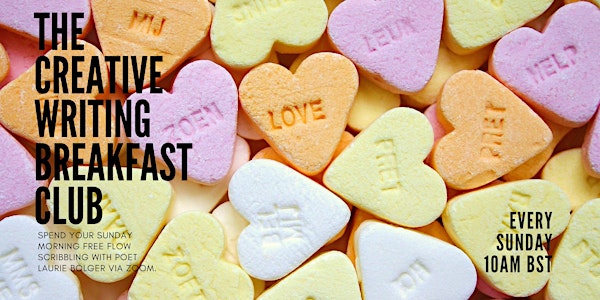
The Creative Writing Breakfast Club Sunday 28th April 2024
Join writer Laurie Bolger for Creative Writing Breakfast Club, a chance to get scribbling from the comfort of your own space via Zoom.
Date and time
Refund policy, about this event.
The Creative Writing Breakfast Club as featured in Time Out is a Free Flow Creative Writing hour with writer Laurie Bolger.
This session is about letting your creativity lead the way, generating new and exciting writing in your own unique style.
During this 60 minute workshop Laurie will take you through fast paced writing exercises to boost mindfulness. All you need is a pen and paper and somewhere chilled to sit and let your imagination do it’s thing.
"My first workshop of Laurie's & definitely won’t be my last… ideas exploding all over the shop - thank you, loved it"
Writing: Water Participant 2023
“Laurie’s workshops are a safe & at the same time dangerous place for writing..."
Writing The Seven Deadly Sins Workshop Participant 2022
“If you ever want a cosy, creative, calming place to explore writing, Laurie's workshops are perfection…My heart is so full (I know what that means now)”
Breakfast Clubber 2023
"Probably the best, most productive w/s I've ever attended. Fantastic. Thank you!"
Writing The Body Participant 2023
Laurie Bolger is a London based writer and founder of The Creative Writing Breakfast Club. Her debut collection Box Rooms has featured at Glastonbury, TATE, RA & Sky Arts.
Laurie’s work has appeared in The Poetry Review, The London Magazine, Moth, Magma, Crannog, Stand, & Trinity College Icarus. Laurie’s writing has been shortlisted for The Bridport Prize, Moth Poetry Prize, Live Canon, Winchester & Sylvia Plath Prizes.
Her poem ‘Parkland Walk’ was awarded first place in The Moth Poetry Prize judged by Louise Glück & was highly commended in this years Forward Prize for Poetry.
Laurie has collaborated with organisations such Google, as Small Luxury Hotels of the World, Nationwide, Mind UK & Choose Love. Laurie's latest publication 'Makeover' is to be published by The Emma Press next year.
www.lauriebolger.com
Instagram @lauriebolger_
Twitter @lauriebolger
- Online Events
- Things To Do Online
- Online Classes
- Online Arts Classes
- #creativeworkshop
- #creativewriting
- #creativewritingbeginners
- #creative_class
- #creative_workshop
- #creative_writing_workshop
- #creativewritingworkshop
Organised by

IMAGES
VIDEO
COMMENTS
By engaging in this creative process, you can embark on a journey of self-discovery and self-expression, gaining insights into your values, beliefs, and unique perspective. Writing prompts help you: Connect with your roots: Reflect on the cultural practices, rituals, and traditions that define your identity.
In Writing an Identity Not Your Own, award-winning Mixed Latine author Alex Temblador will discuss one of the most contentious topics in creative writing: crafting a character whose identity is historically marginalized.She'll begin by discussing what she means by 'identity' and why it's important to understand the state of diversity in publishing, before delving into how unconscious ...
Writing prompts about yourself can help you explore personal identity, relive memories, examine relationships, and express gratitude. Writing about your goals and aspirations can help you clarify your vision and take action towards achieving them. Whether you are journaling for self-reflection or working on a creative writing project, writing ...
4. TAKE ADVANTAGE OF YOUR COROLLARY ENDEAVORS. Assess your skills, hobbies, and interests. For example, having another area of expertise or working in another branch of publishing, art, performance, or writing enhances your credentials and may also have a public aspect. Decide if your love of cooking or art influences and factors into your ...
The Duality of Writing and Identity: Adaptation and Reclamation. Writing is a fluid expression of identity, enabling individuals to adapt, negotiate, and reclaim their sense of self. In multicultural societies, individuals may navigate multiple identities, crafting different narratives to accommodate various cultural contexts.
Self-awareness gained through creative writing allows individuals to develop a stronger sense of identity, enabling them to navigate challenges, make informed decisions, and live more authentically.
"Writing An Identity Not Your Own: A Guide for Creative Writers" By Alex Temblador Publication Date: August 13, 2024 My Rating: ⭐⭐⭐⭐ The Synopsis: This book is a practical guide to help authors authentically write and edit a character whose identity is different than their own.
-- David Mura, A Stranger's Journey: Race, Identity & Narrative Craft in Writing "Alex Temblador breaks new ground in Writing an Identity Not Your Own, guiding writers to craft characters from historically marginalized backgrounds with sensitivity and depth―a seminal guide to responsible and enriching creative writing that is both timely and ...
This article presents writing prompts that tap into your personal experiences to explore various aspects of identity. From childhood memories to personal challenges, these prompts encourage self-reflection and growth. Dive into the depths of your past and present to gain a deeper understanding of who you are.
Our personal and creative identities are irrevocably linked. Your voice is unique. Think of the countless influences and experiences that have shaped you. You are a complex, glorious being made up of every hardship, heartbreak, disappointment, desire, joy, and triumph you've ever known. Your distinct writing identity stems from an endless ...
Writer identity is a complex topic that has been approached in various ways related to L1 and L2 writing. In our study, we are adopting three assumptions about identity that reflect the consensus in the field (e.g., Joseph, 2004; Nogami, 2020; Norton, 2000; Norton & McKinney, 2011), as explained in Chap. 1.First, writer identity is constructed through the text, not existing as a set of ...
There is quite a bit to talk about with this topic. 5. My Likes and Dislikes. Because you have many things that you like or do not like, this can be a lengthy essay topic idea. Your likes and dislikes are what make you who you are. If you are focused on personal essay writing, this can be a good place to start.
Writing Identity. College Writing, L59 114. ... In this course, we explore these and similar questions through the work of creative and critical writers, artists, and thinkers. We study key concepts such as double consciousness, intersectionality, and performativity. We consider how social dynamics, power, and privilege affect the language we ...
Engage your creative side and delve into the introspective world of the characters as you explore your own journey of self-discovery. To kickstart your reflective writing, consider the following prompts: 1. Conflict and Identity: Reflect on a personal conflict in your life that has challenged your sense of identity. Describe how this conflict ...
Expressing Identity in Writing. Even though individuals speak and write effectively using different varieties of English, many people nevertheless believe that one standard, "proper" English variety exists and that this "correct" way of speaking and writing should be used universally in all settings.
ABSTRACT. The identity transition from high school student to high school graduate holds particular uncertainties for students. The purpose of this narrative research study, co-constructed by a high school Creative Writing teacher and doctoral candidate, is to better understand how high school students engage creatively with their own identity and then communicate such engagement through ...
Next, it is time to take a more refined approach to planning your writing. Think back to The Digital World: Building on What You Already Know to Respond Critically, which addresses the different purposes for writing. To help shape your writing use a separate sheet of paper to answer the questions in Table 2.1.
All students, not just those with a fondness or a capacity for writing. It is a tall order, I know, but I think maybe it all starts with having choice and the space to write what is in our hearts. I would love to hear your thoughts about the idea of developing writing identities. Please share in the comments below. 7.
This book explores narrative imagination and emotion as resources for learning critical meta-reflection. The author examines the learning trajectories of several students as they engage in learning to think critically through a new approach to creative writing, and details how learning through writing is linked to new discoursal identities which are trialled in the writing process.
The study contributes to L2 creative writing research and L2 learner identity research and will be of benefit to researchers, language teachers and writing instructors who wish to understand creative writing processes in order to help develop their students' positive self-esteem, confidence, motivation and engagement with the L2.
Zhao, Yan. Second Language Creative Writers: Identities and Writing Processes. Multilingual Matters, 2015. For Jacques Derrida, language is a habitat that contours one's "ipseity" (1). He addressed the complex-ity generated in one's sense of the self when one speaks a language that is not one's own, but a legacy of the colonial ...
A piece of creative writing contains not only the words on the page, but also parts of the writer's identity that they drew upon in order to create the piece. Not only does writing tie into their identity as a writer, but many creative writers take inspiration from things in their own lives and place them in their writing.
Project Mend has earned support from Humanities New York, the Syracuse University Humanities Center, Engaged Humanities Network, the SOURCE, the Department of Writing Studies, Rhetoric and Composition, and a CUSE research grant. April 22, 2024 · By Lesley Porcelli. Project Mend team members Katherine Nikolau '24, Michael J. Willacy.
Race Writing Prompts: Explore Themes of Identity In our diverse society, exploring themes of identity and race is crucial. These writing prompts provide a platform to engage in thoughtful discussions, fostering empathy and understanding. Dive into topics like cultural heritage, discrimination, and personal experiences. Let your words tell stories of resilience and celebrate our shared humanity.
This is a podcast about stories, place, and identity from students at the UBC Creative Writing Department in Vancouver, BC. Featuring multi-genre writing, music, cooking, experiments with sound design, plus crucial advice for lighting a campfire, setting up a creative space, and general exploratory weirdness.
Celebrating creative writing of all genres, the Five College Prose and Poetry Prize, formerly PoetryFest, was reinstated in 2023 after a hiatus due to the pandemic. The contest received 150 total submissions from students representing UMass Amherst, Amherst, Hampshire, Mount Holyoke and Smith colleges, and The Care Center of Holyoke this year. ...
Event Details. Continue where we left off at the end of our Memoir Writing workshops for adults 50 and older. This program will be held in person at 58th Street Library and online. Teaching artist Frank Ingrasciotta will continue to guide participants through the art of writing over 5 extra sessions. Storytelling is our most ancient art form ...
The Department of Literatures in English / Creative Writing Program proudly presents the 2024 MFA in Creative Writing Graduation Reading! Poets Meredith Cottle, Imogen Osborne and Derek Chan and fiction writers Samantha Kathryn O'Brien, Jiachen Wang, Charity Young and Natasha Ayaz will share work from their theses or other works-in-progress. Reception to follow in the English Lounge, 258 ...
She revealed that she entered The Outlaws' writing room for Season 3, which launches on the BBC and Amazon next month, and has a co-writing credit on episode five of the new season. Related Stories
Writing The Seven Deadly Sins Workshop Participant 2022 "If you ever want a cosy, creative, calming place to explore writing, Laurie's workshops are perfection…My heart is so full (I know what that means now)" Breakfast Clubber 2023 "Probably the best, most productive w/s I've ever attended. Fantastic. Thank you!" Writing The Body ...